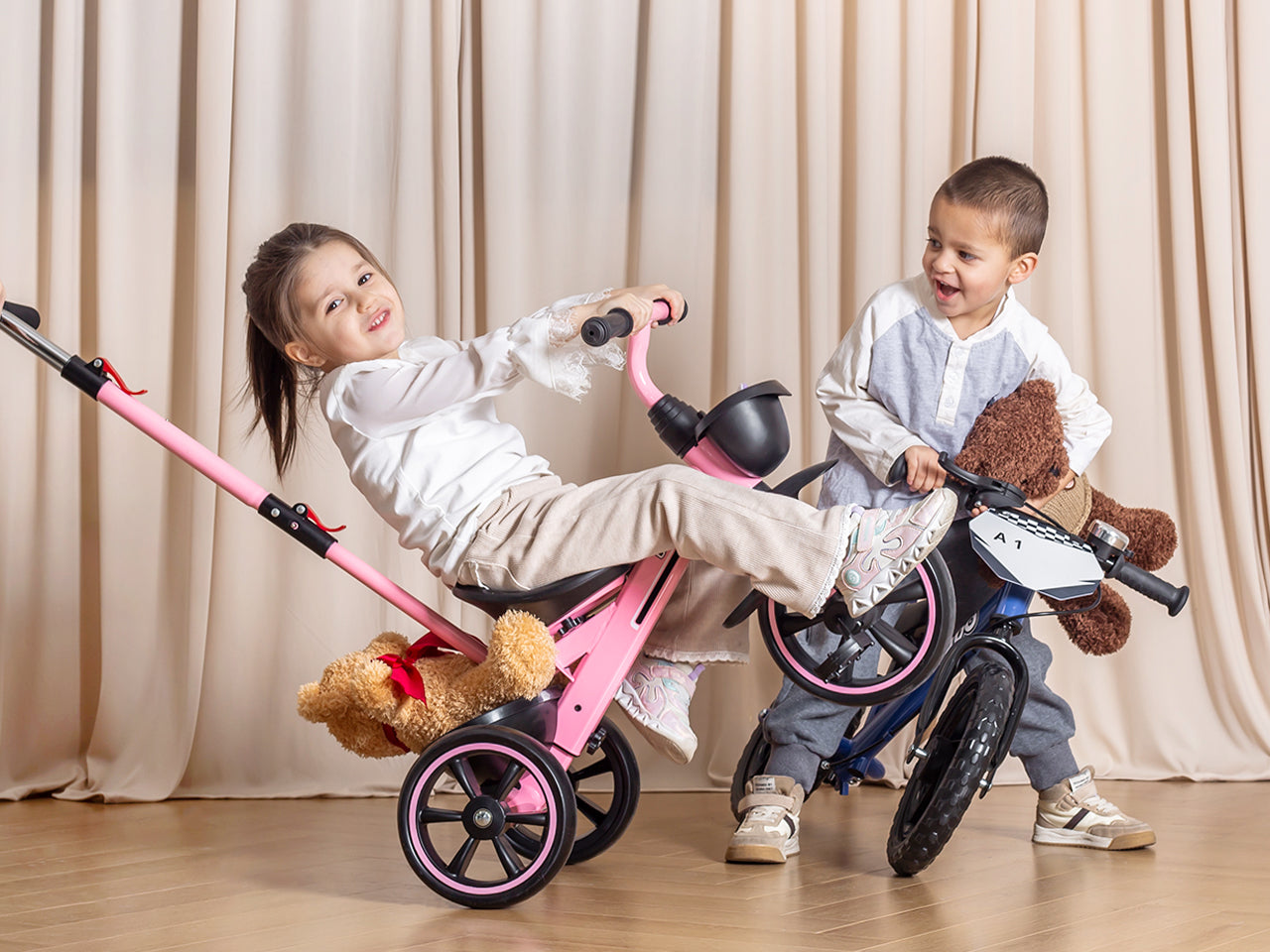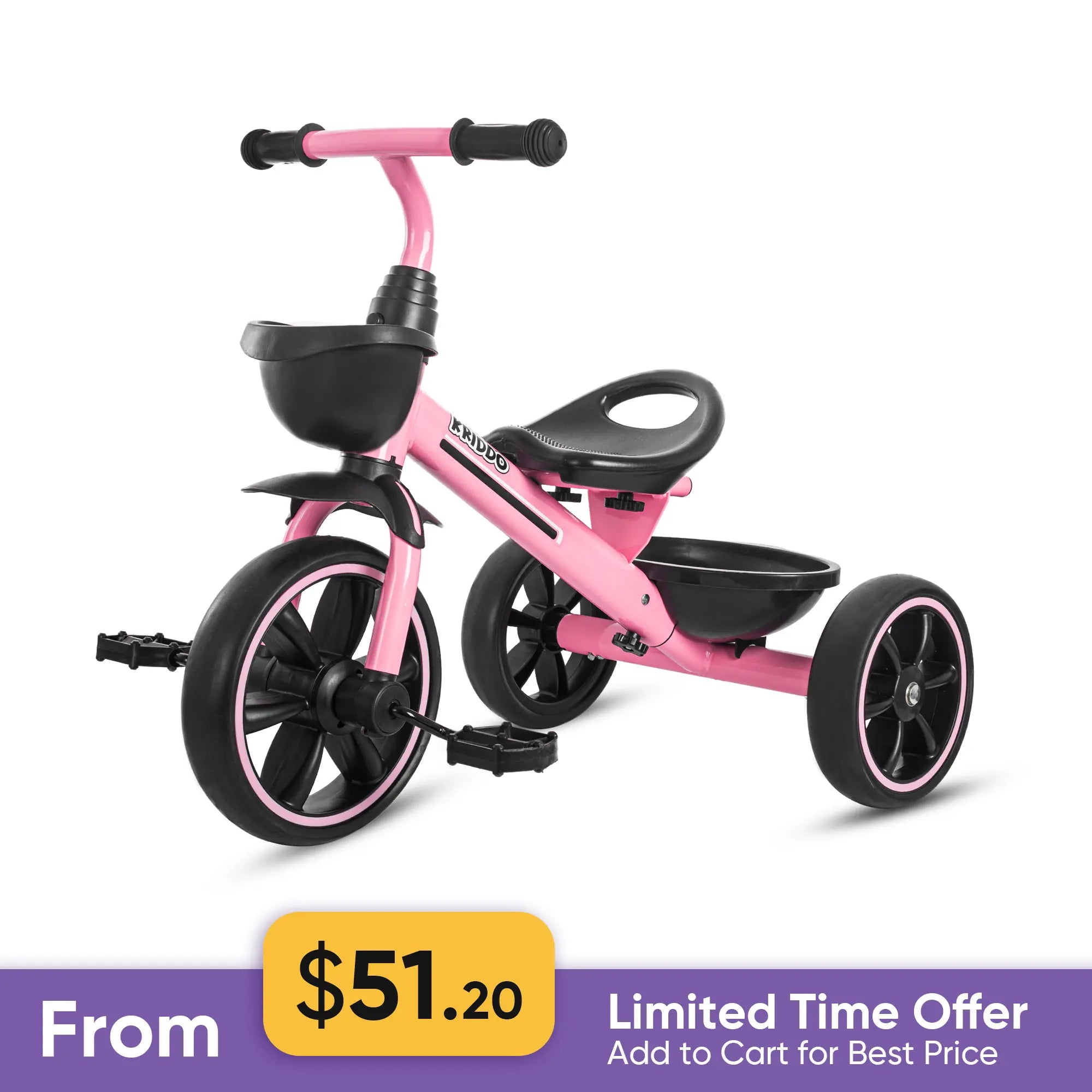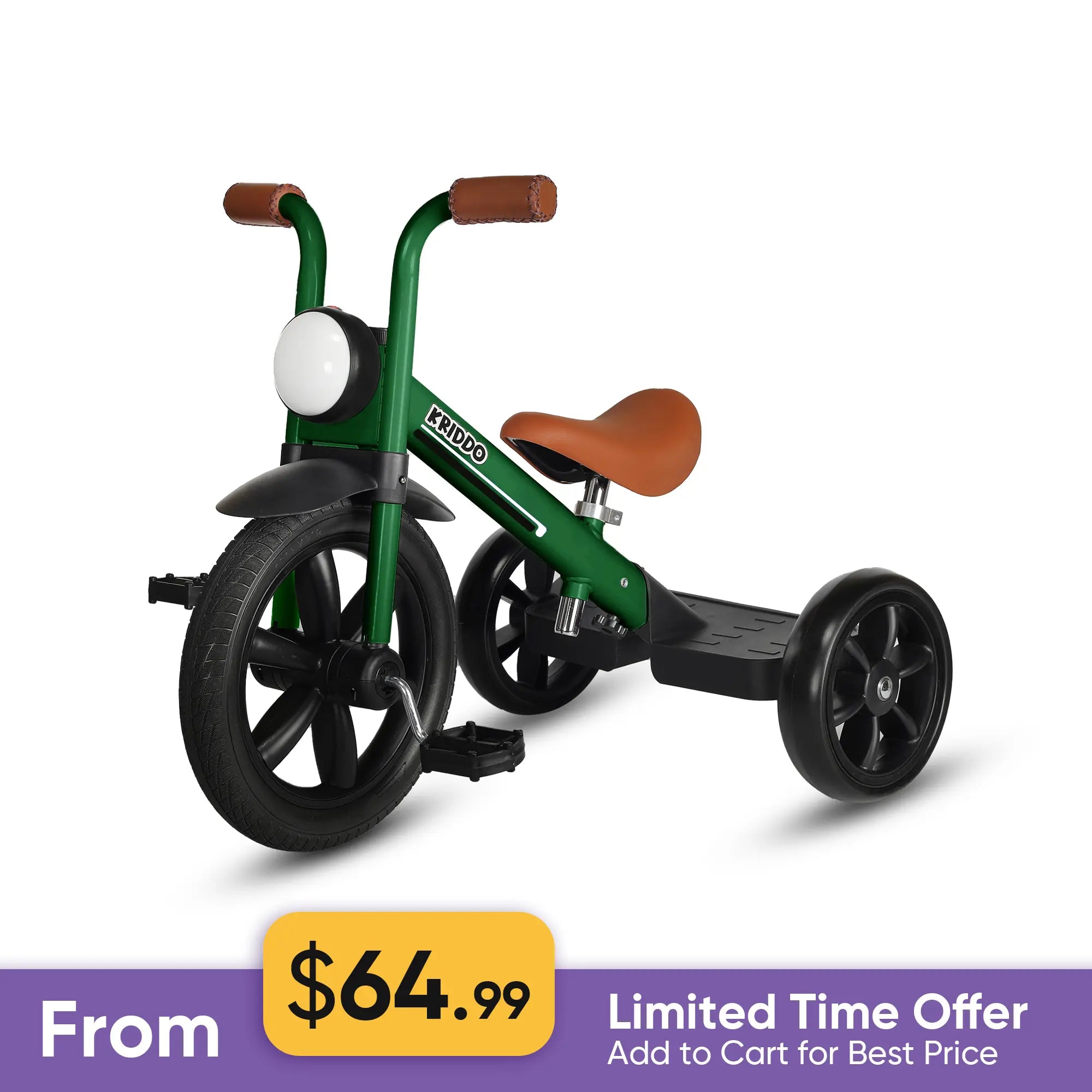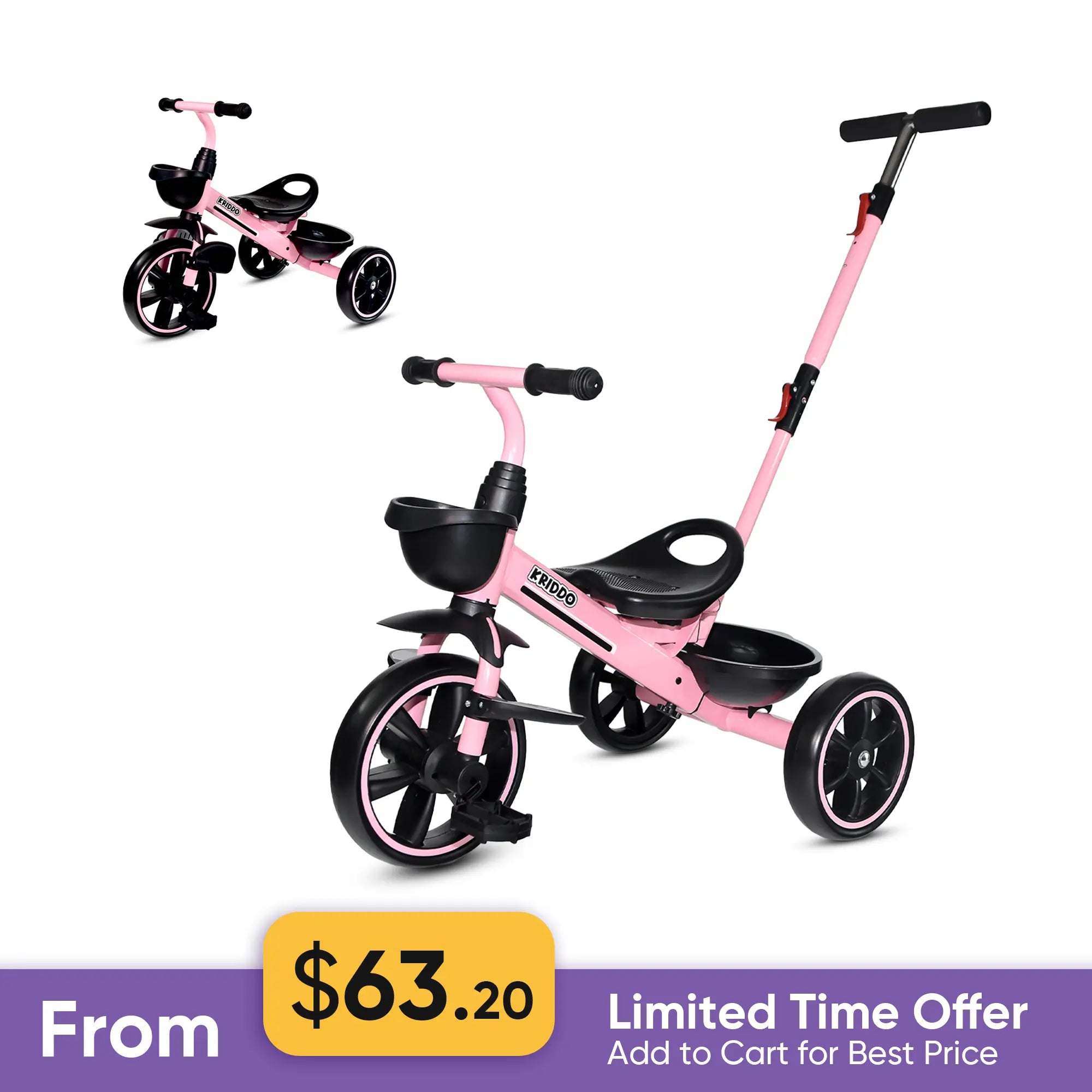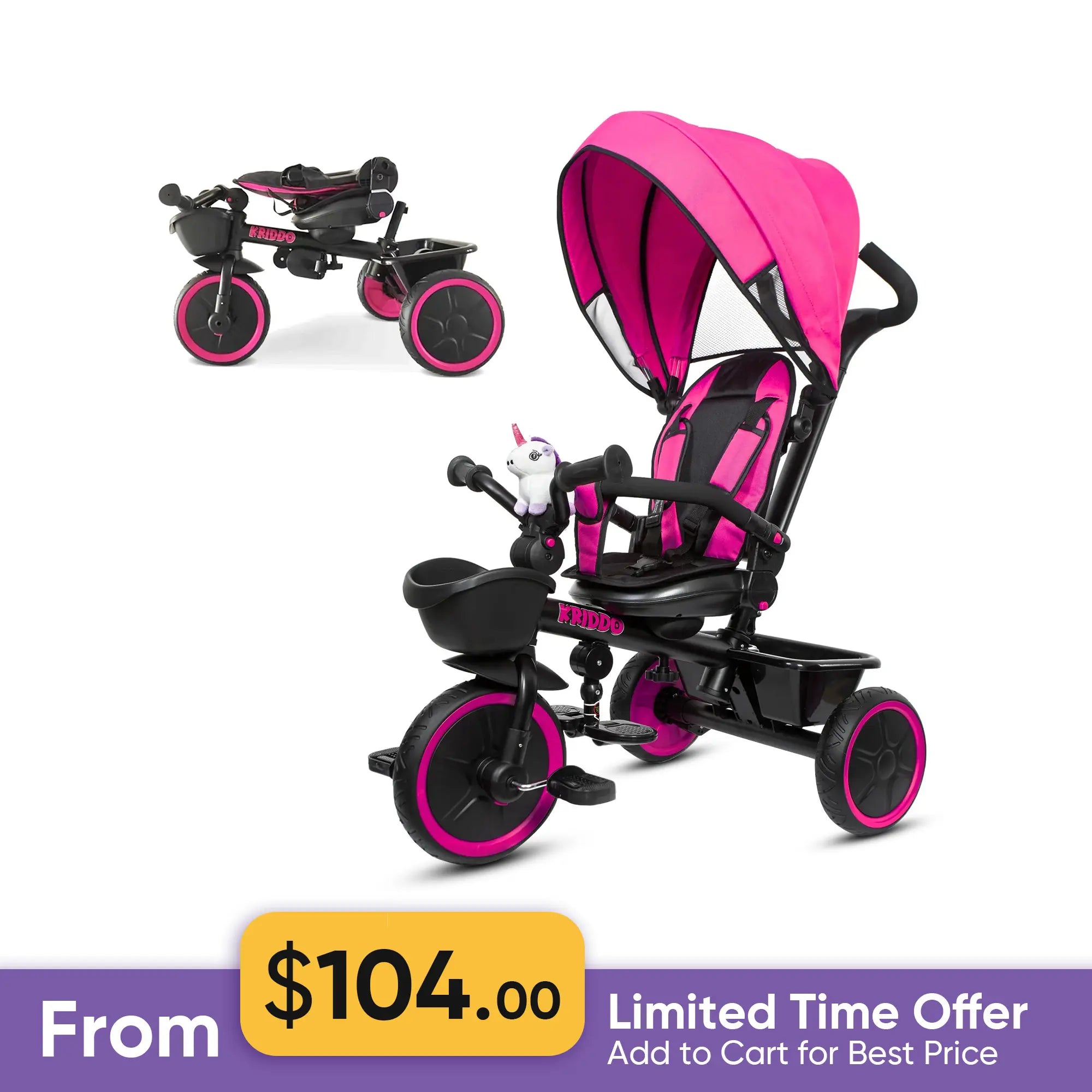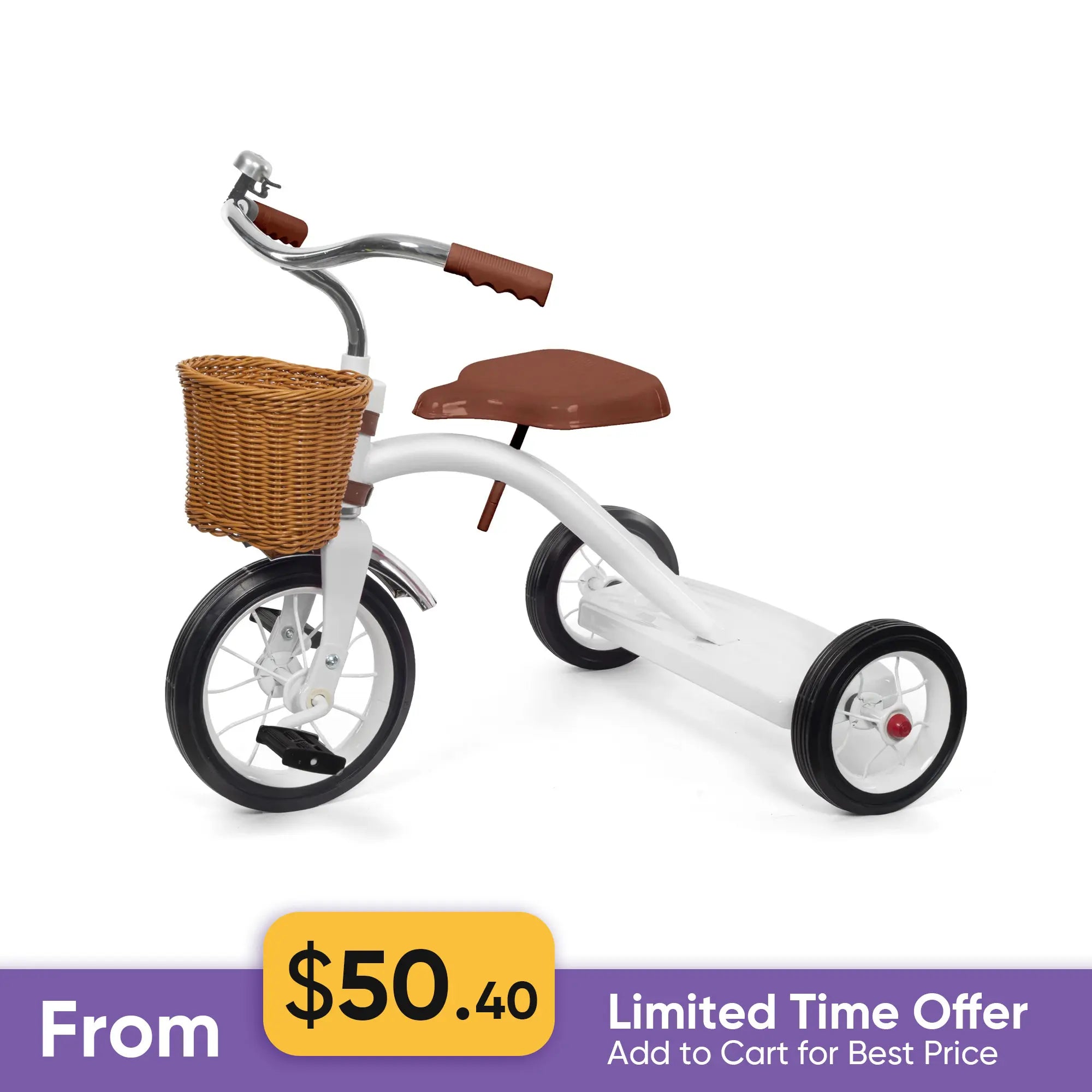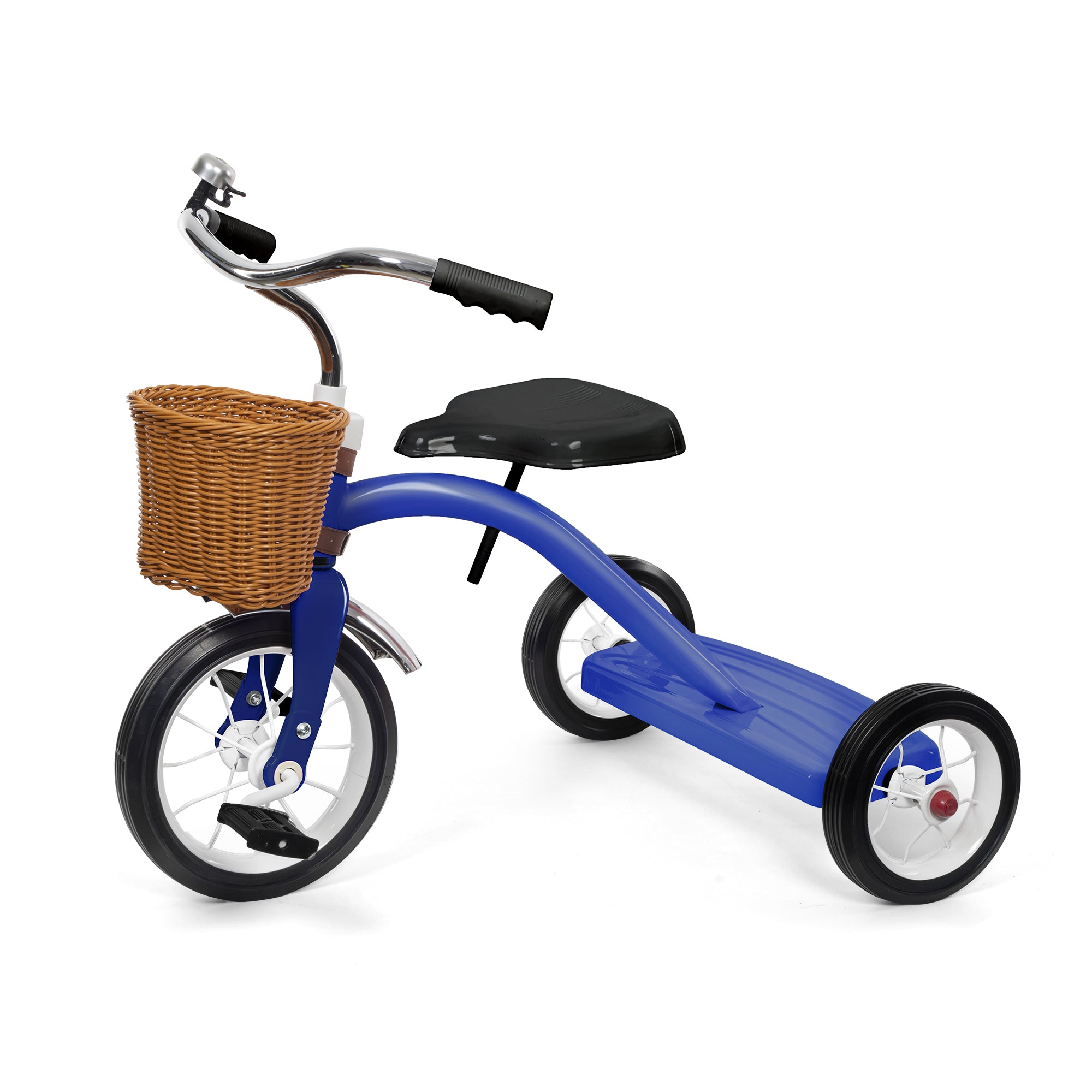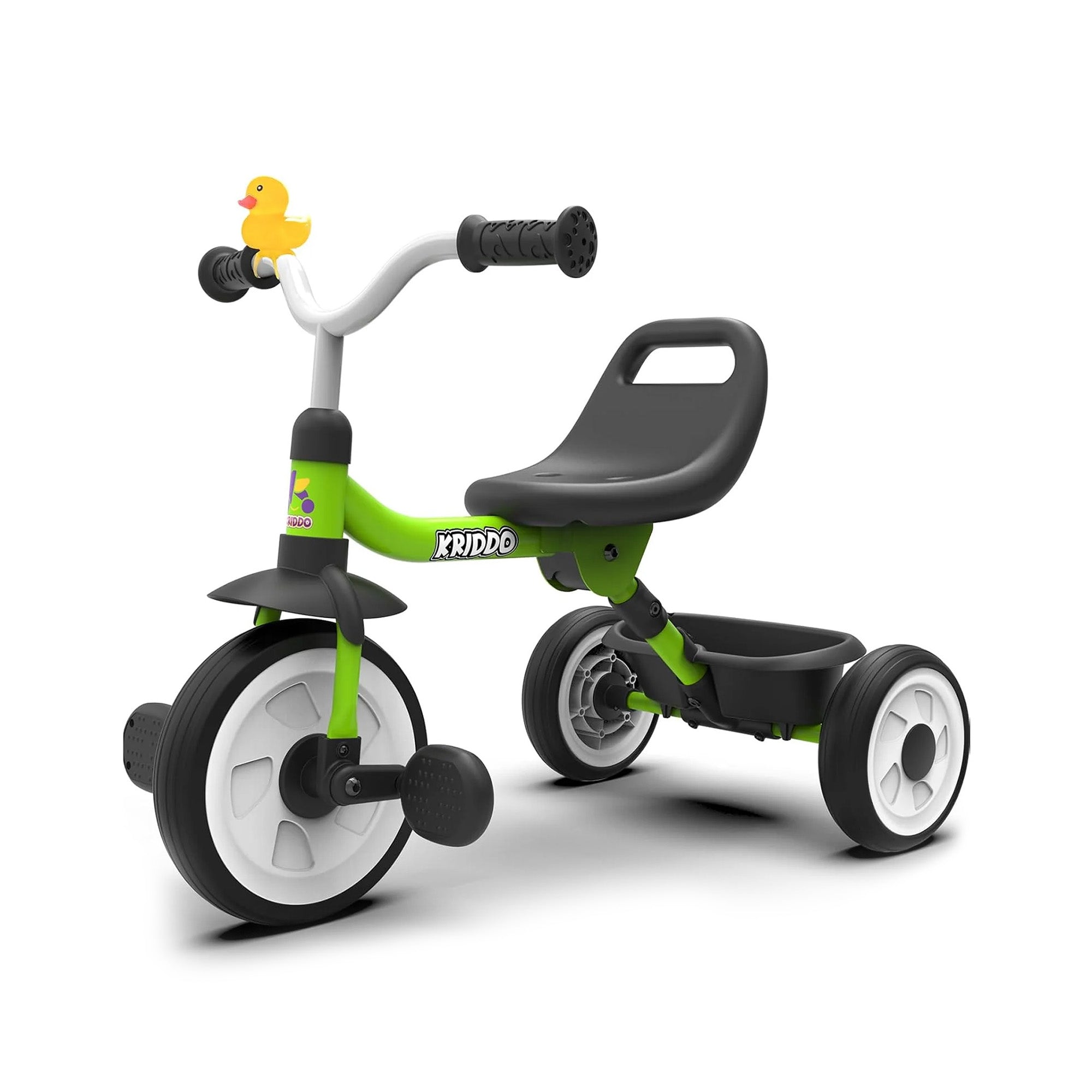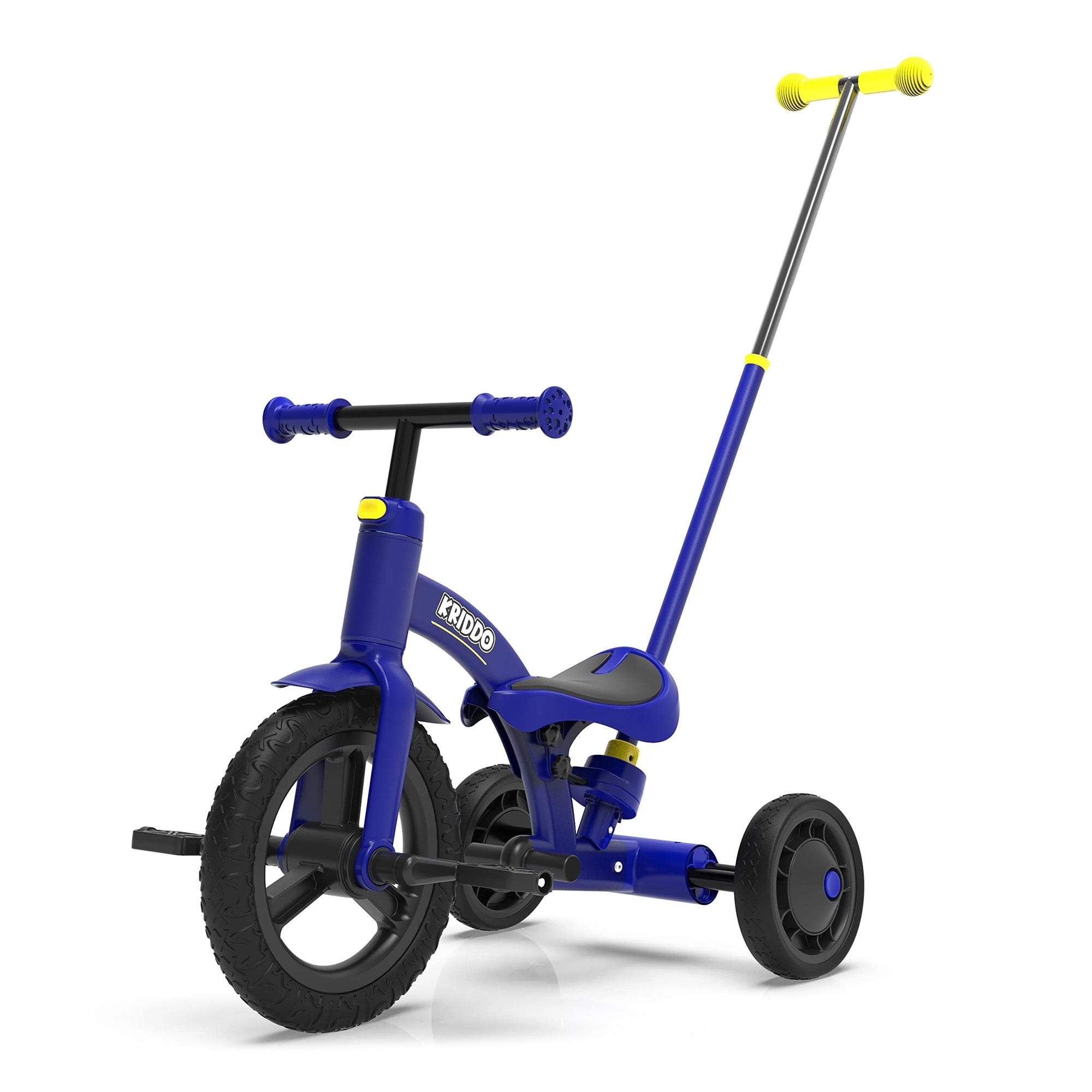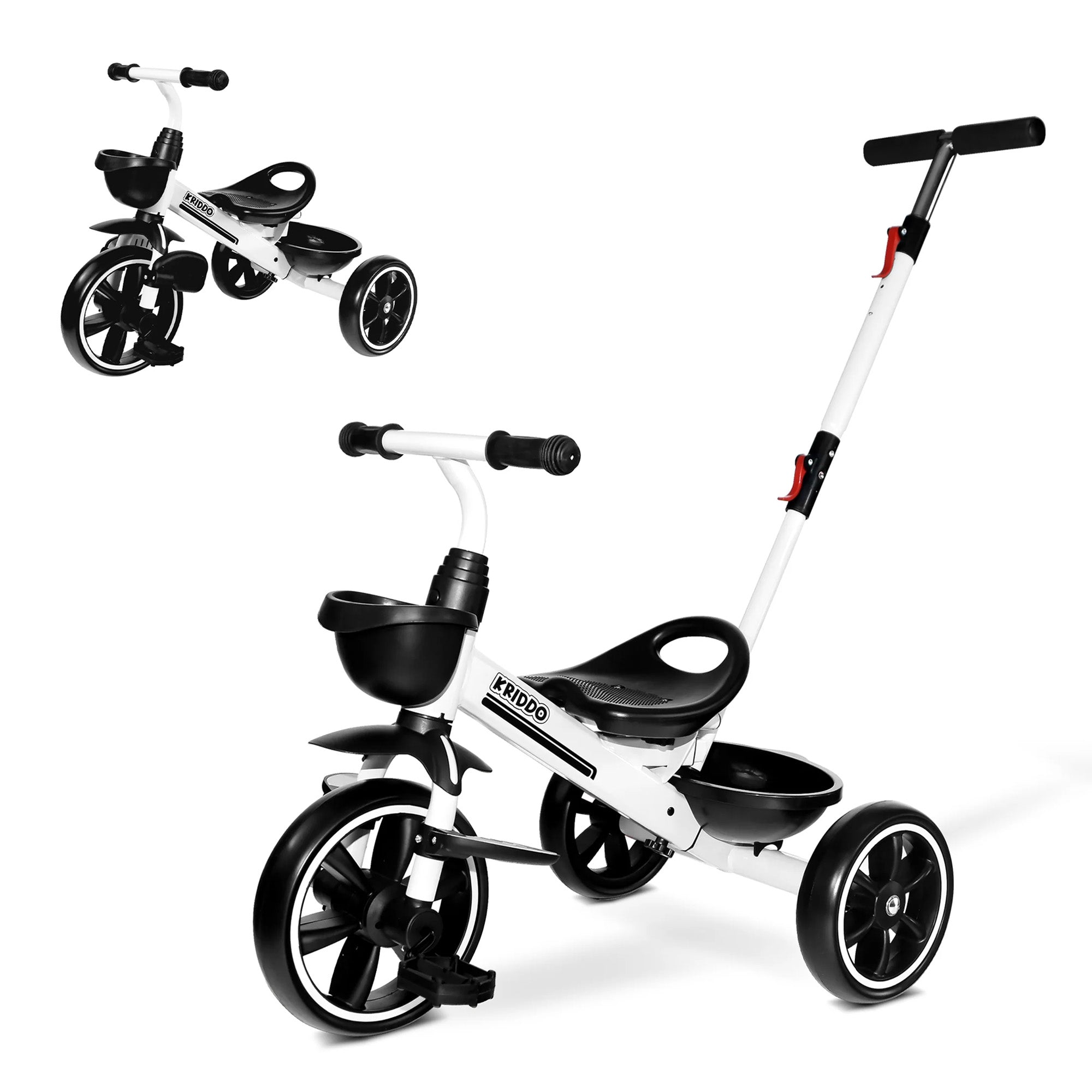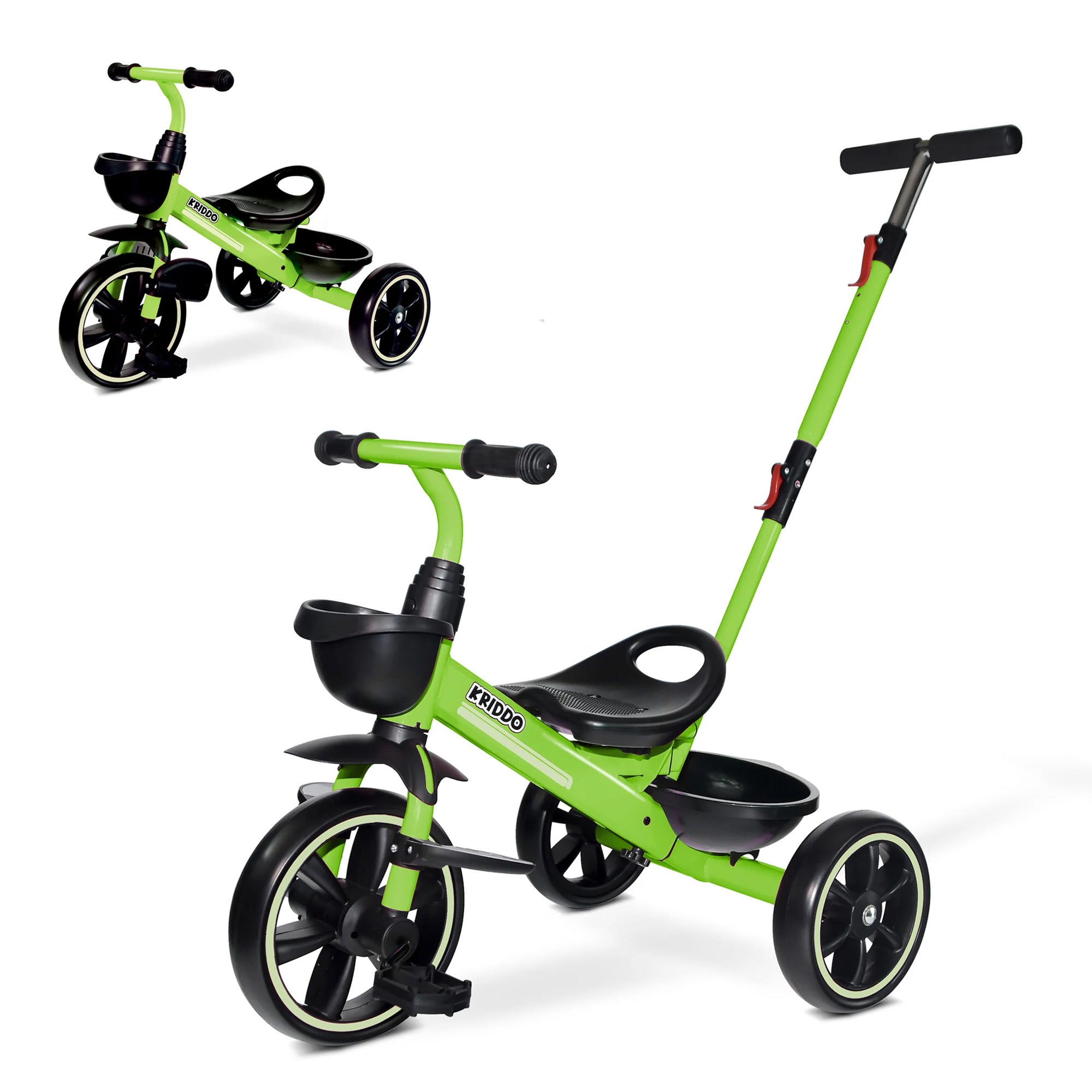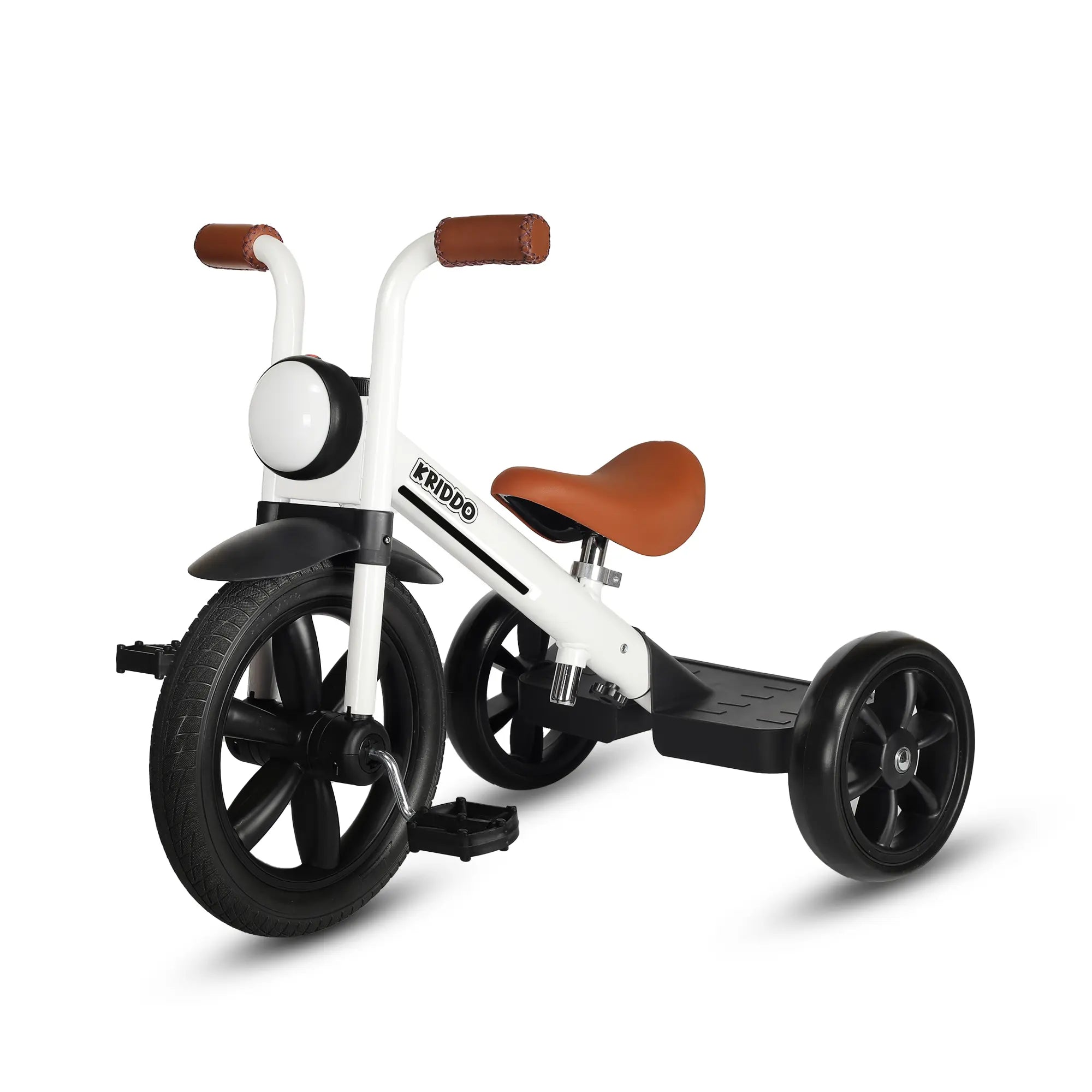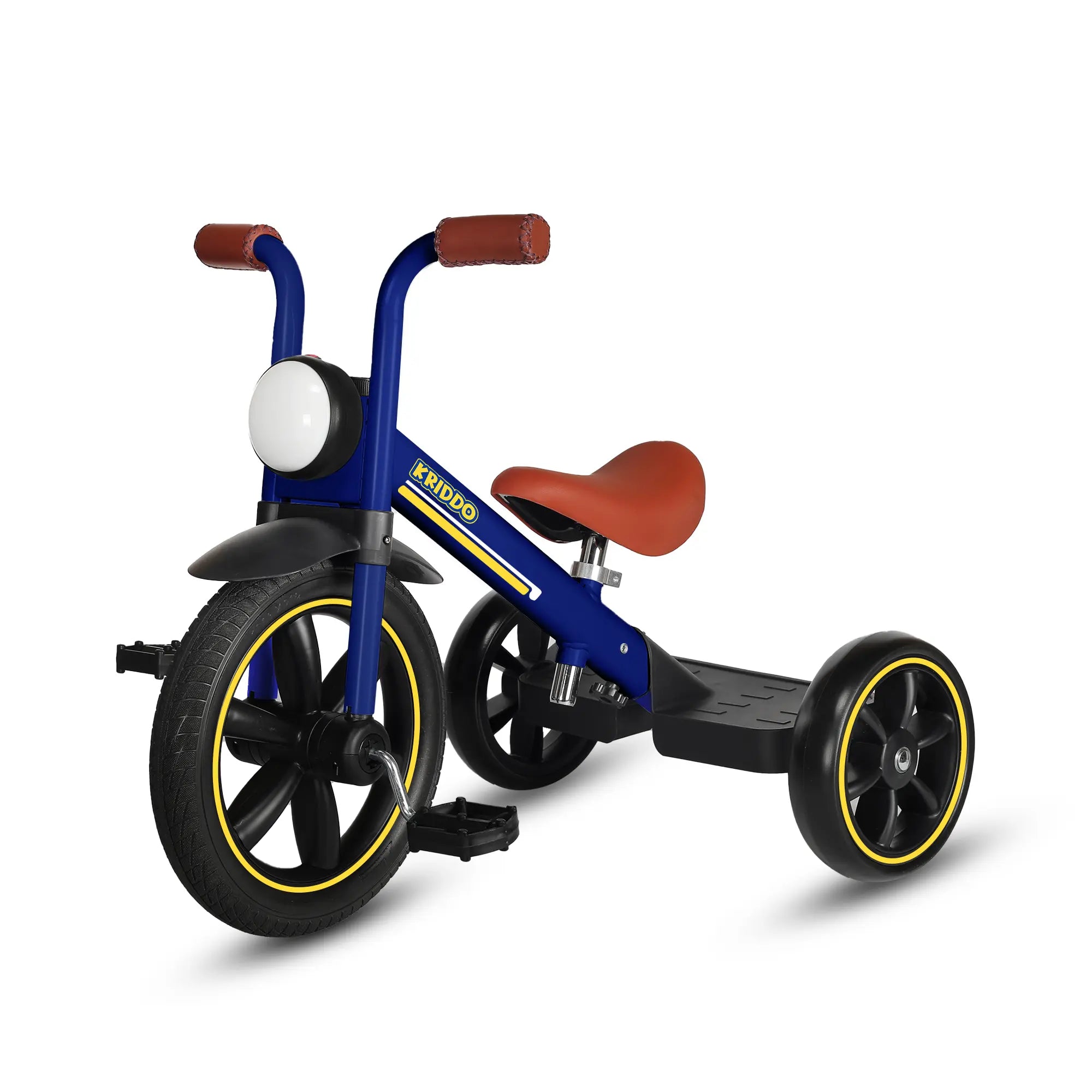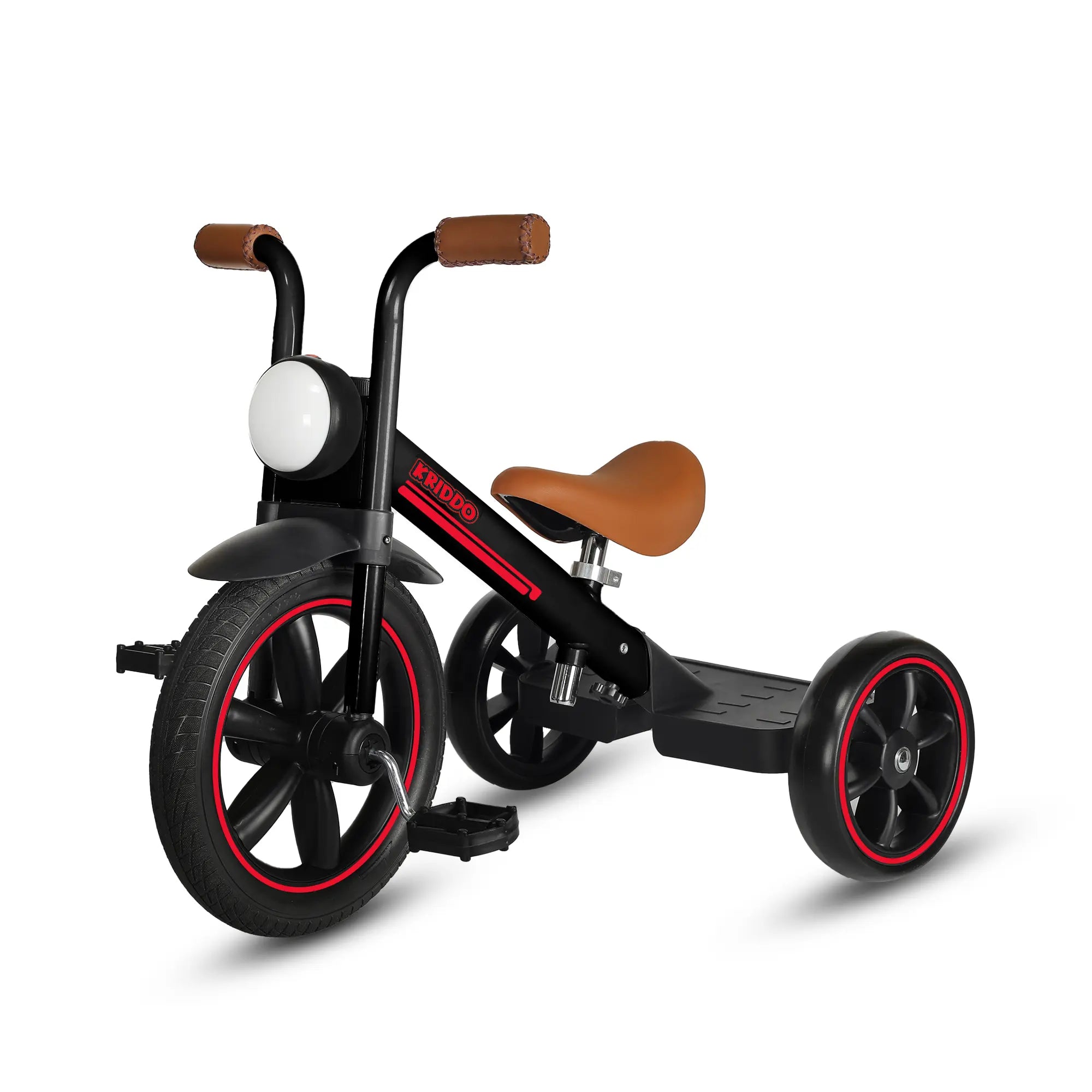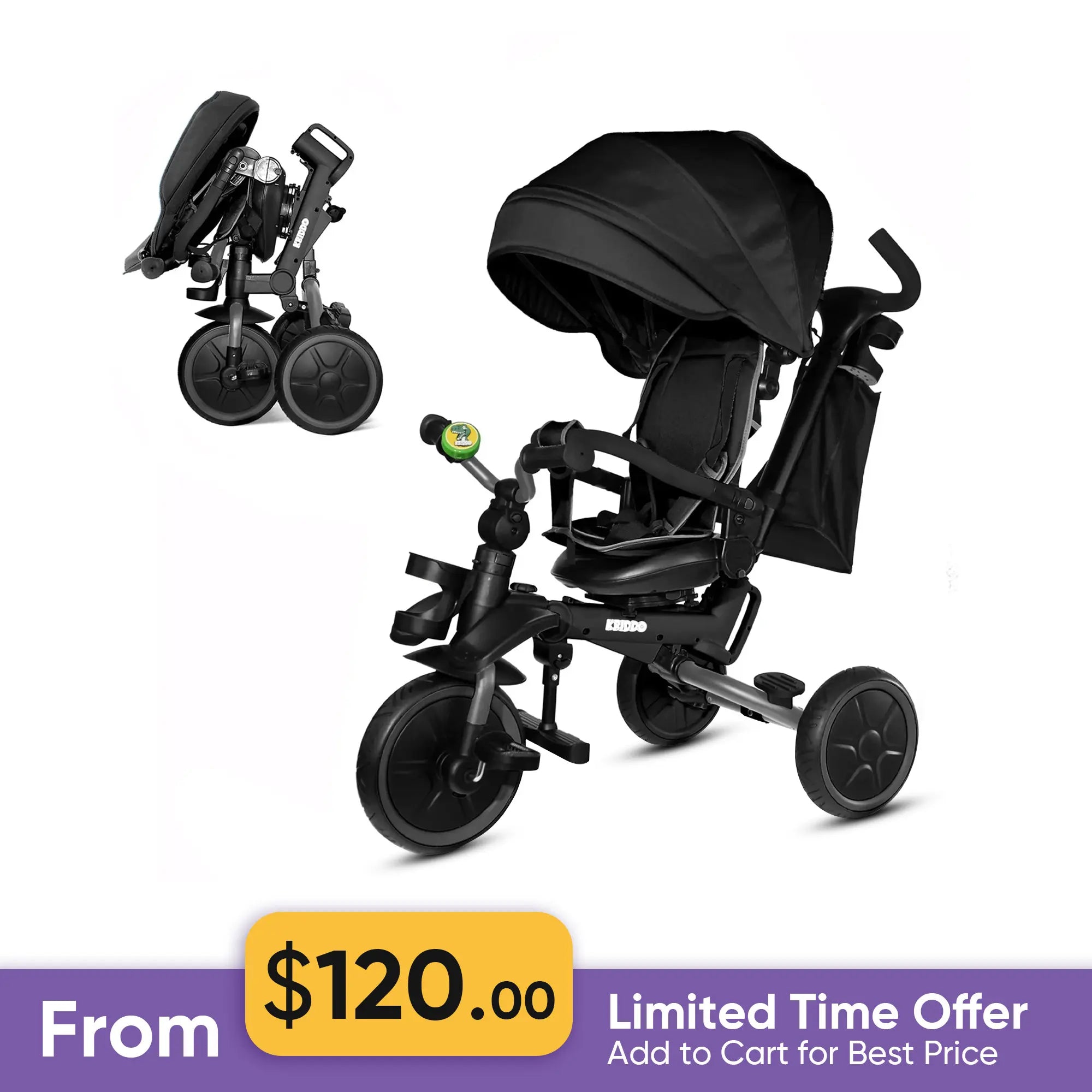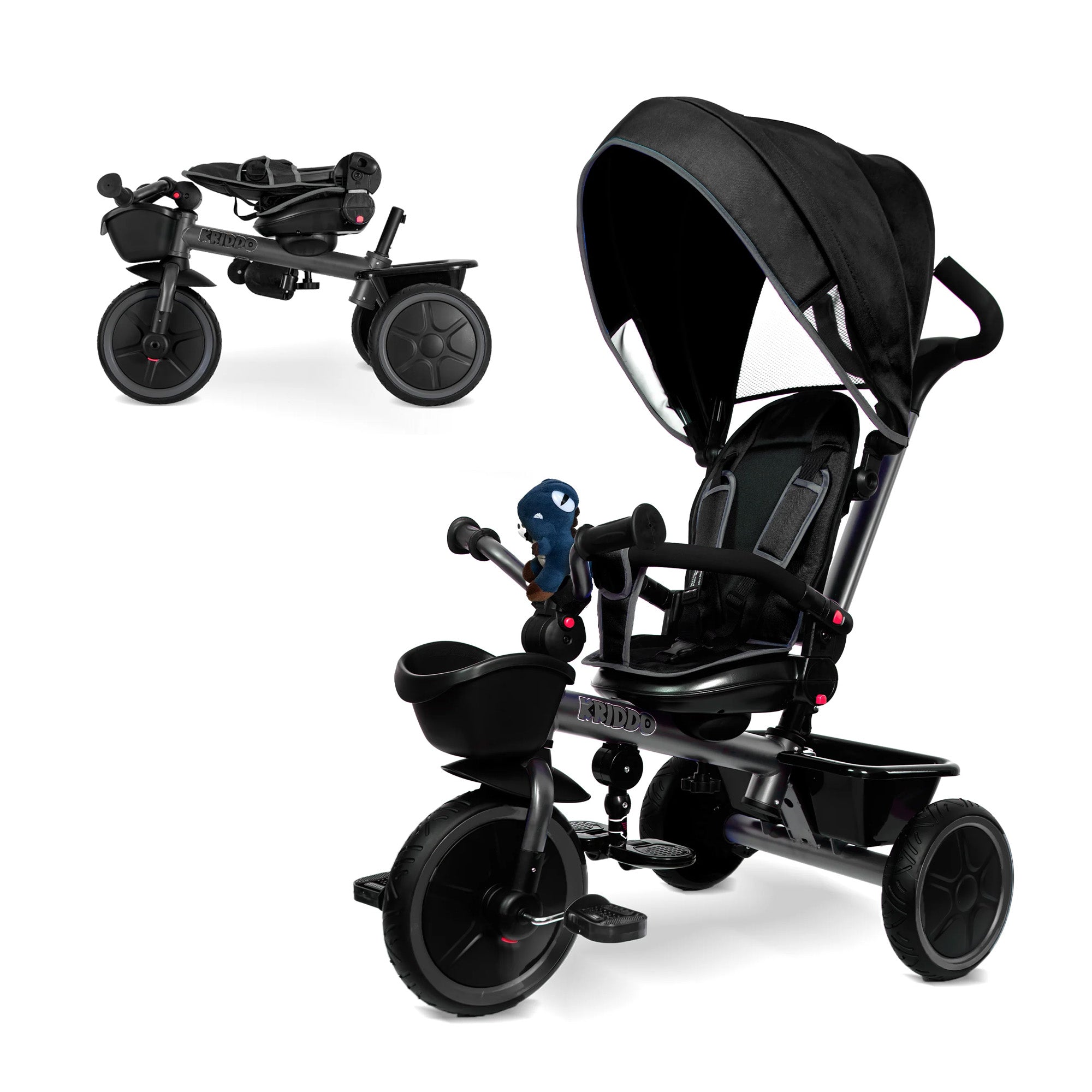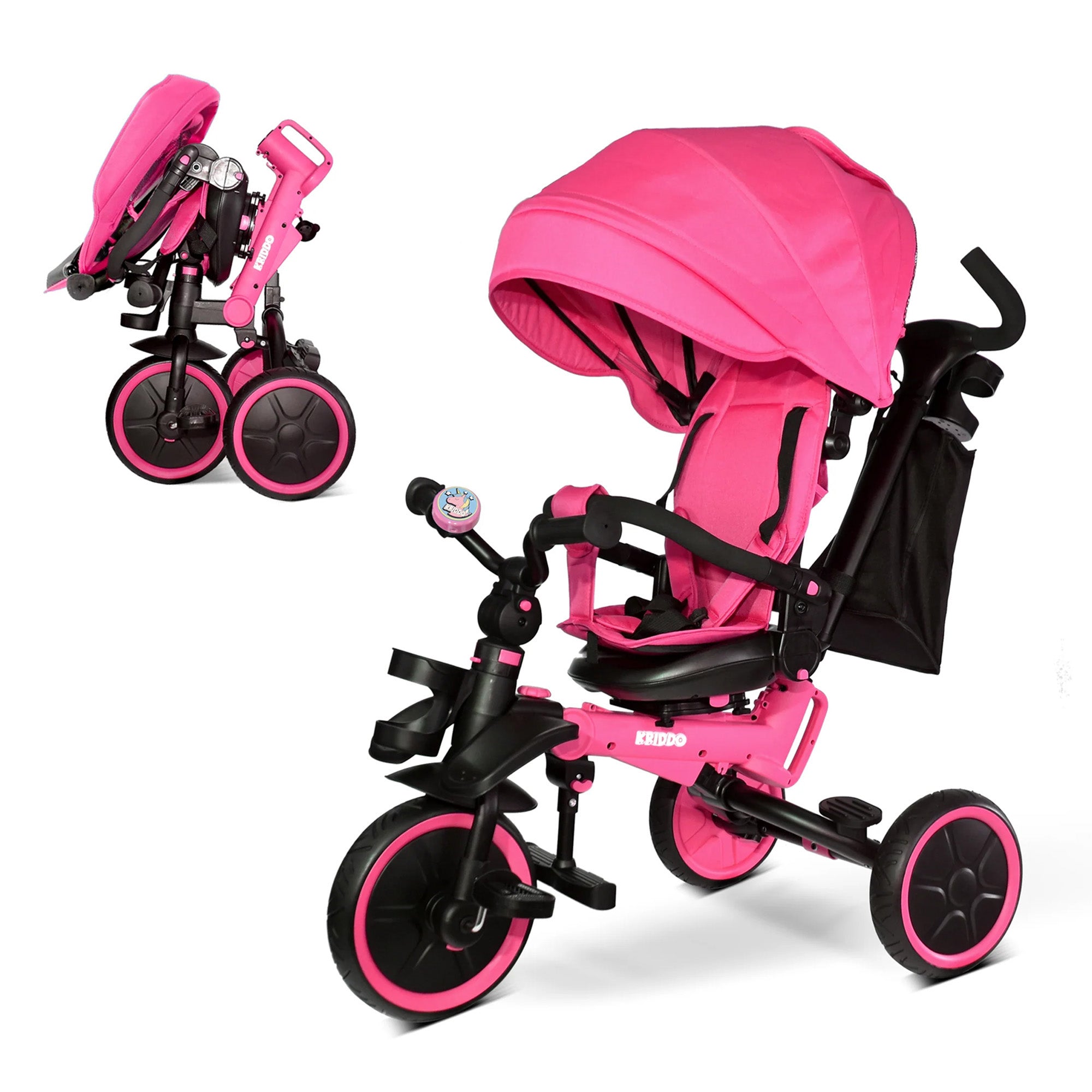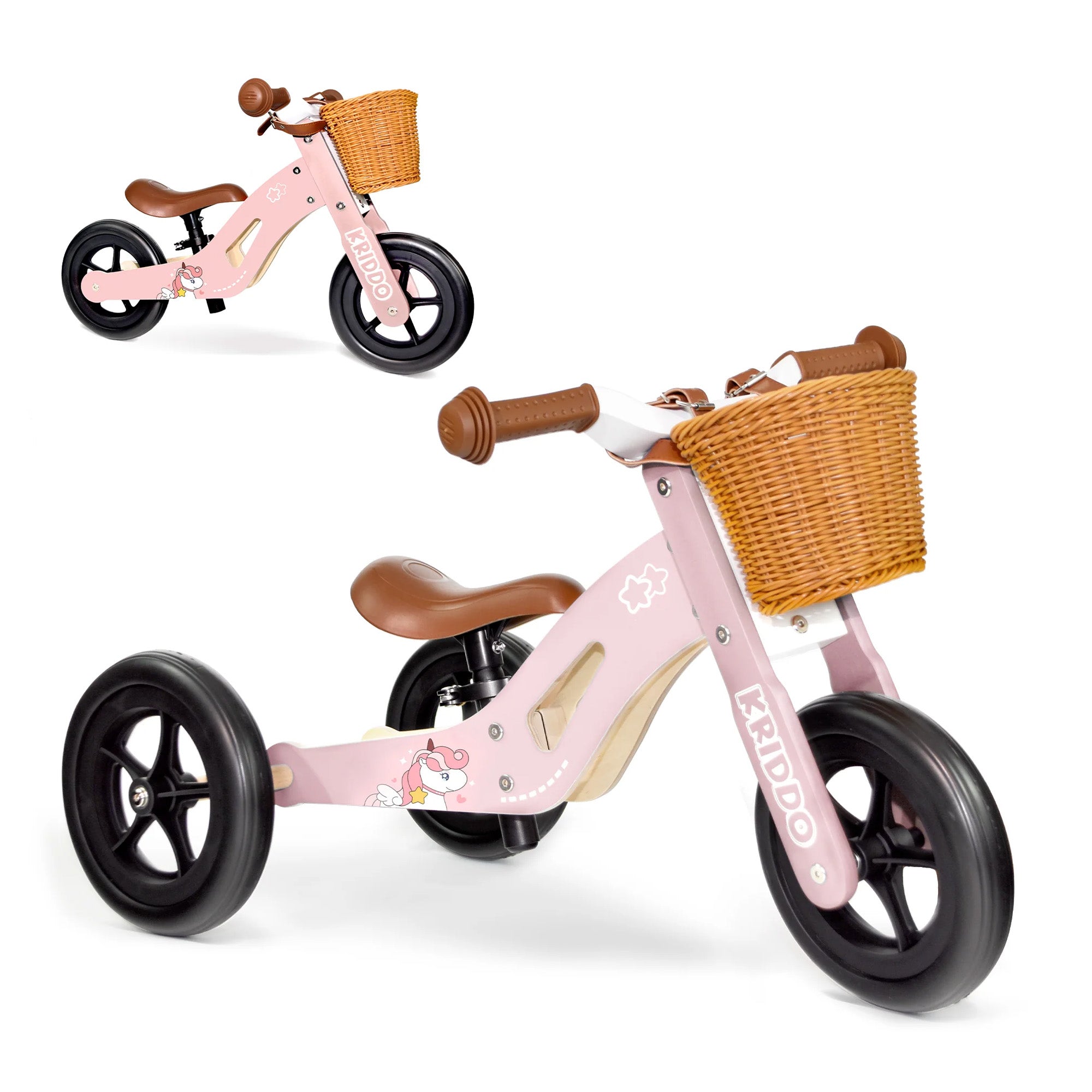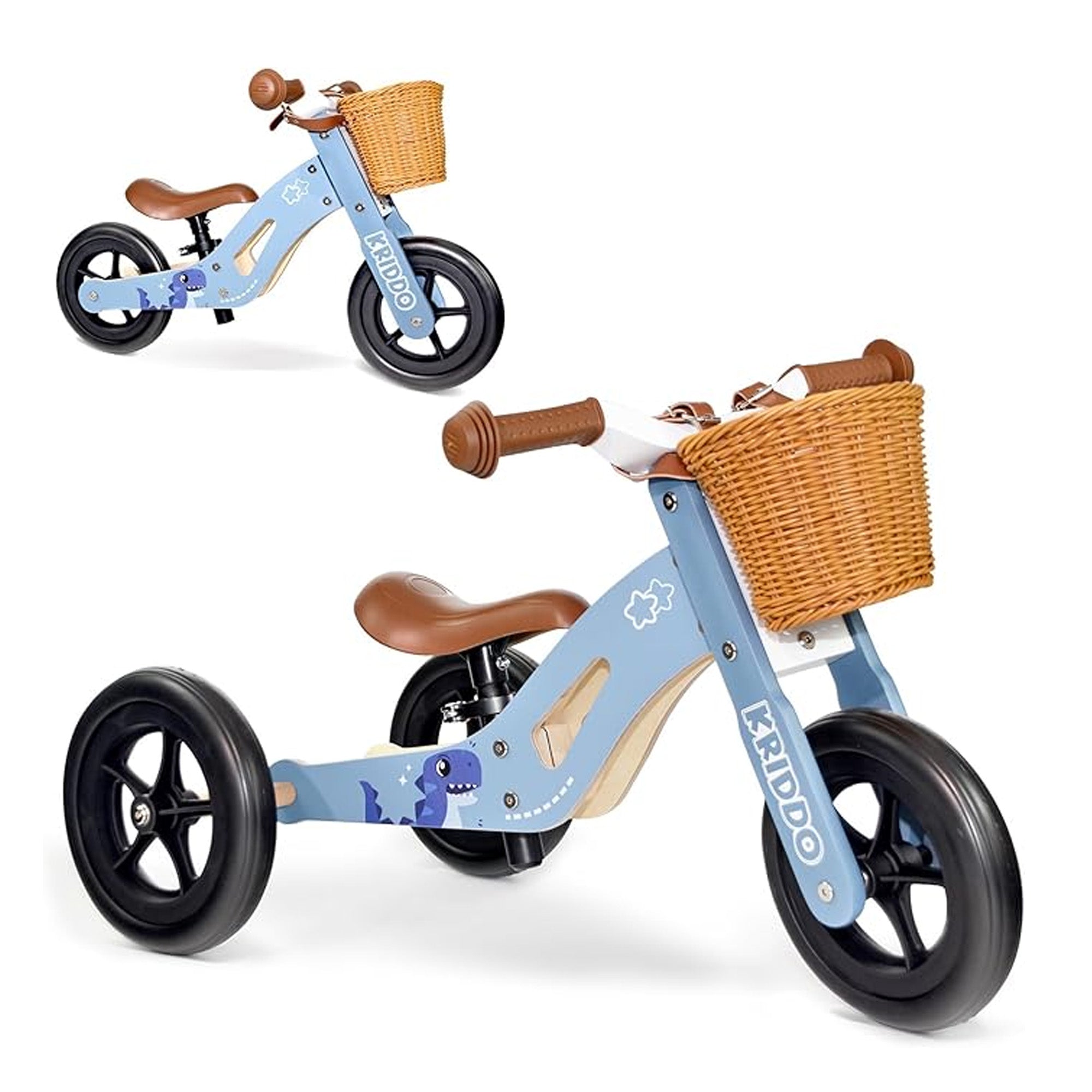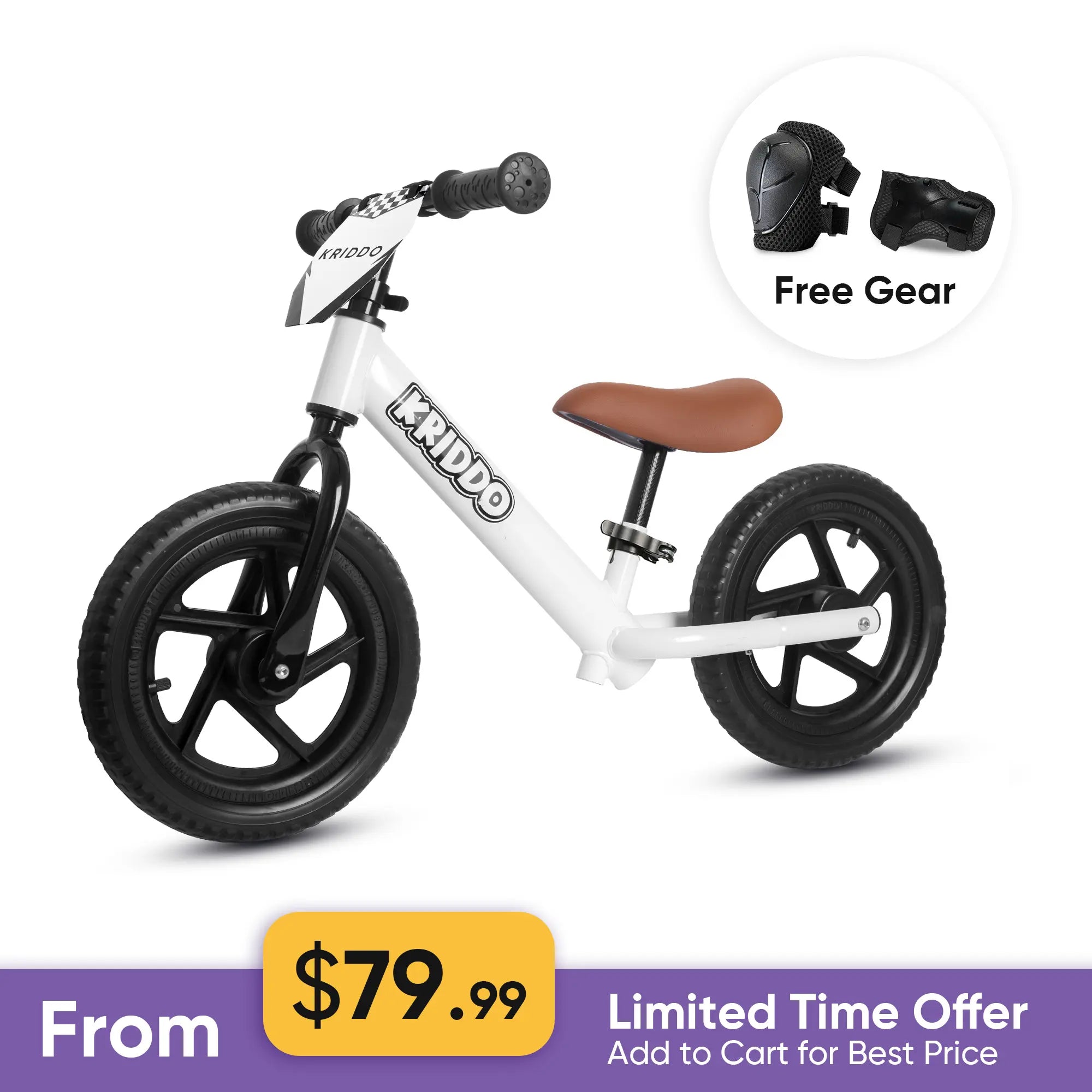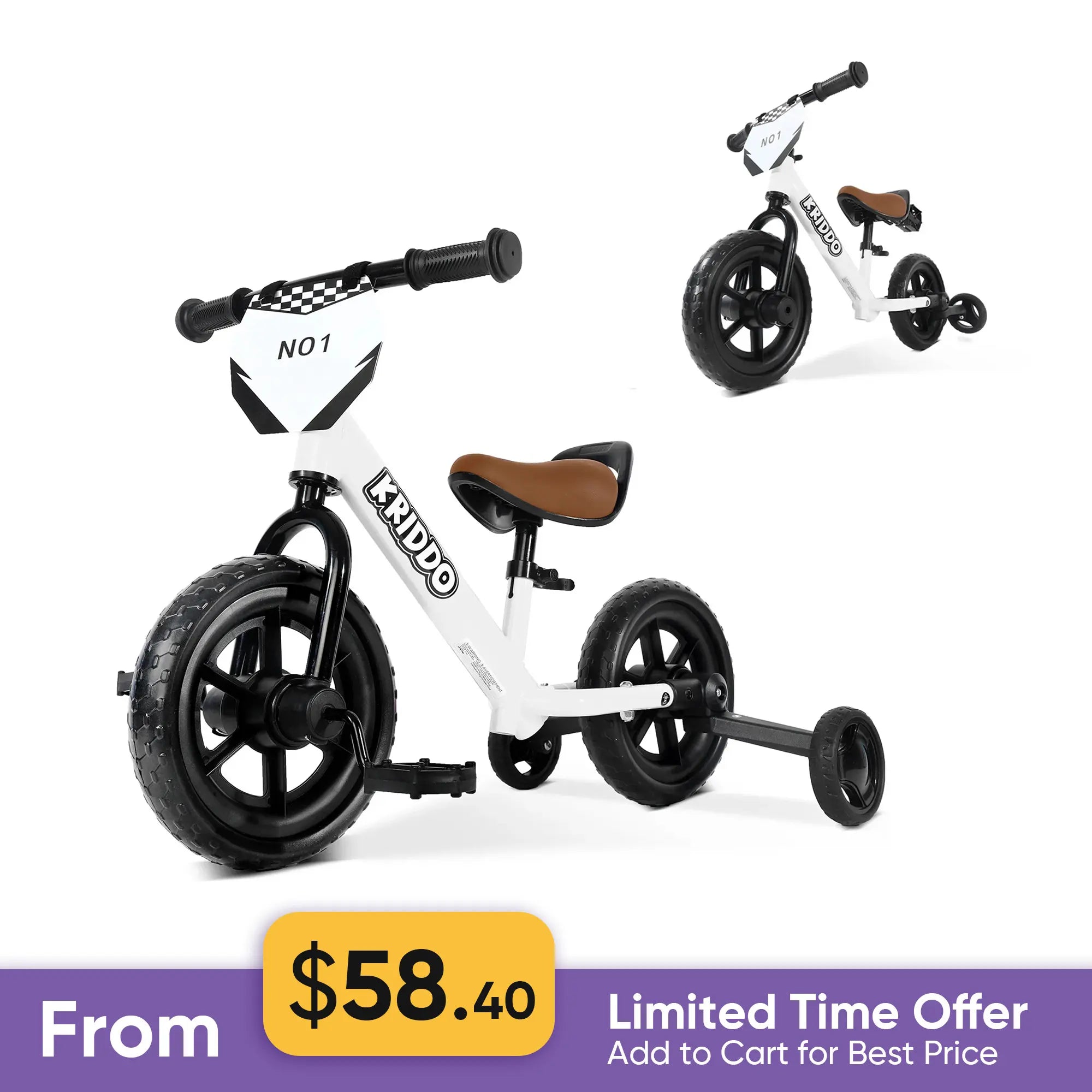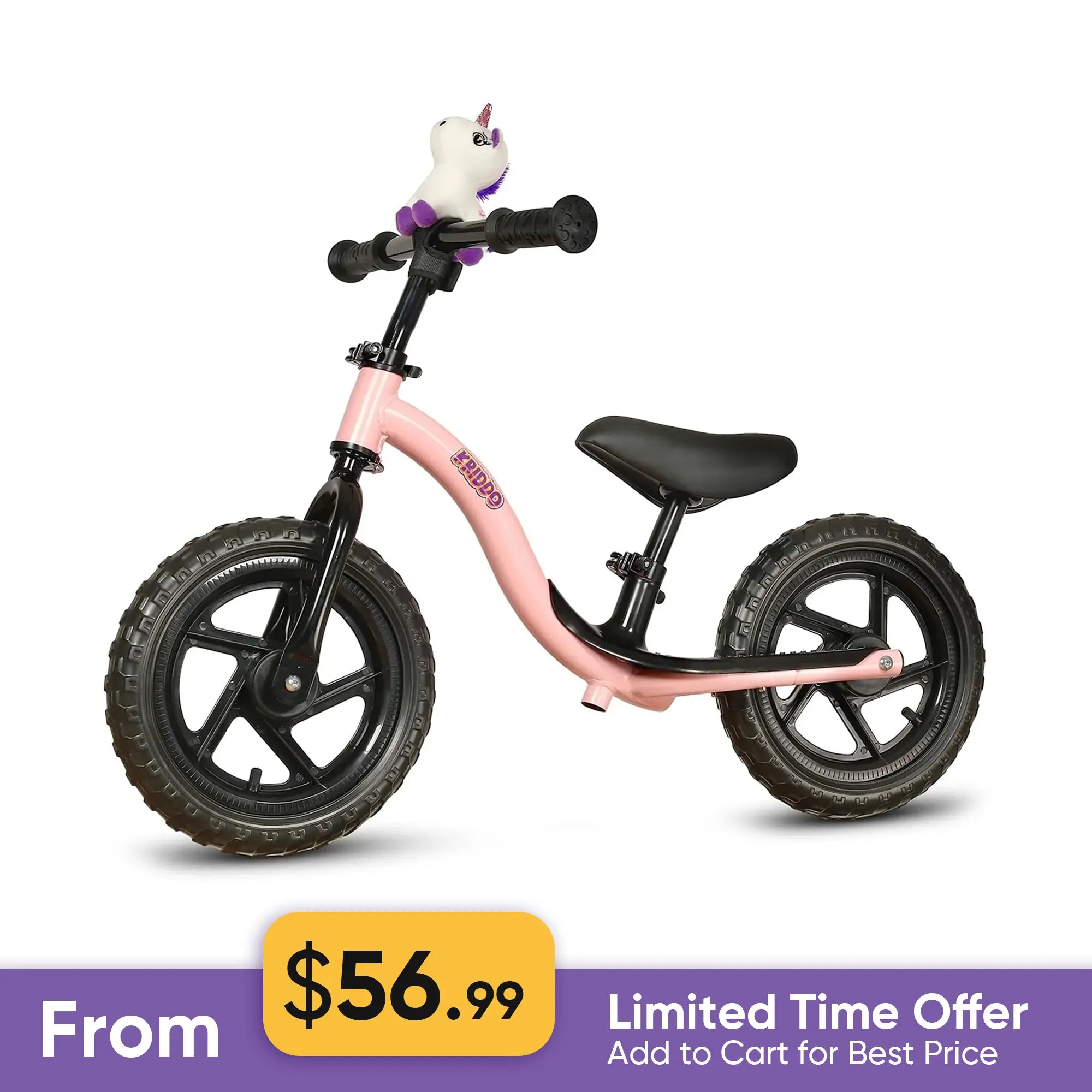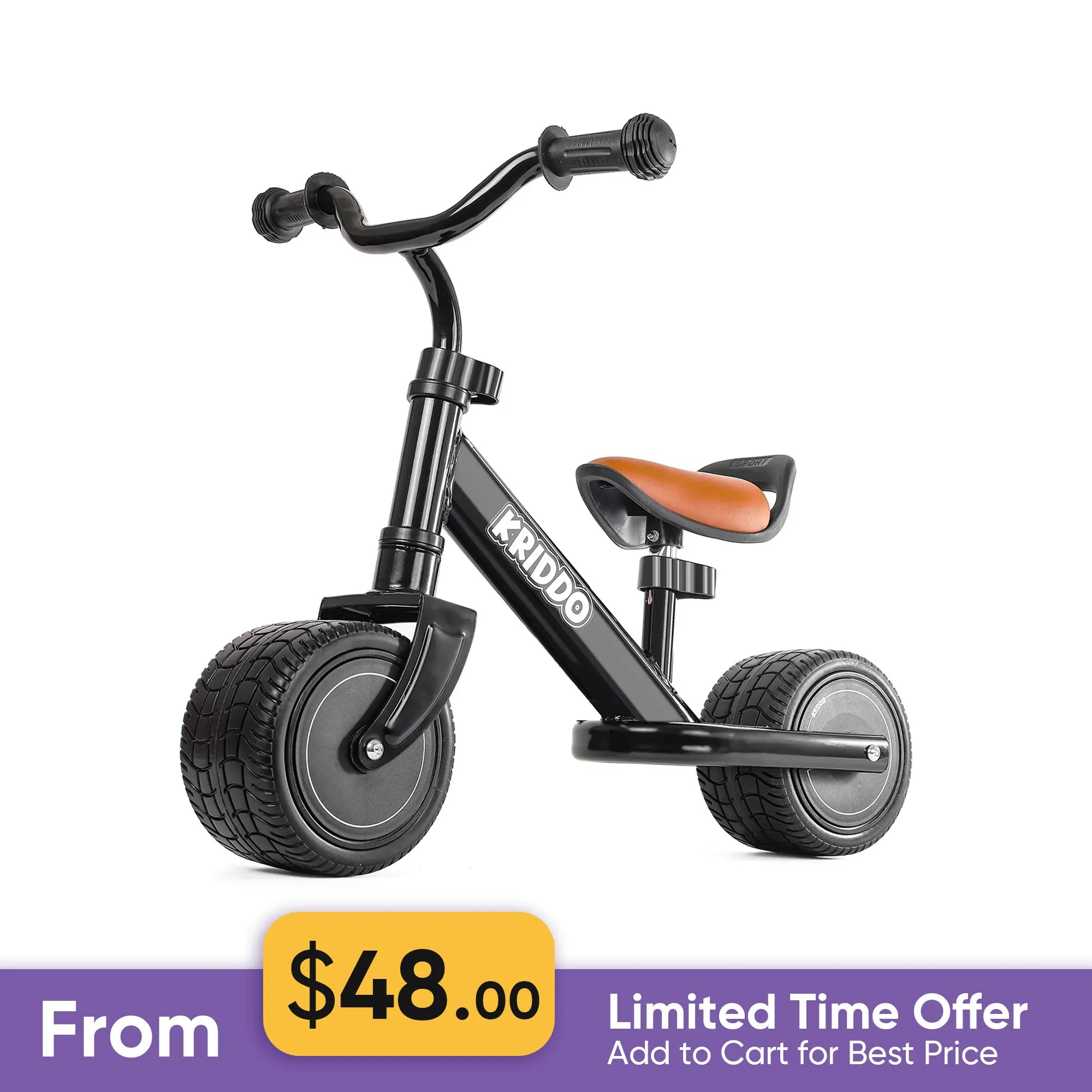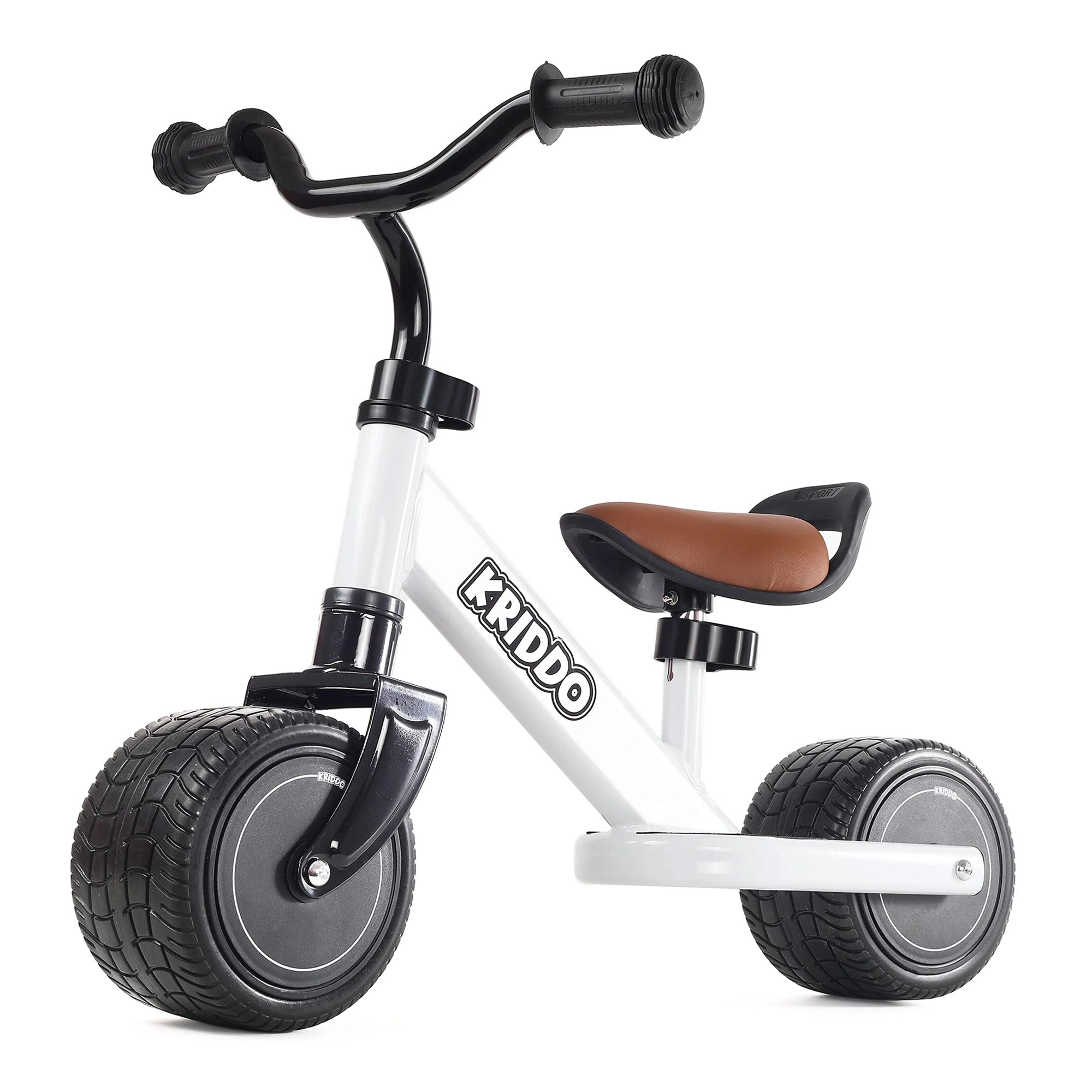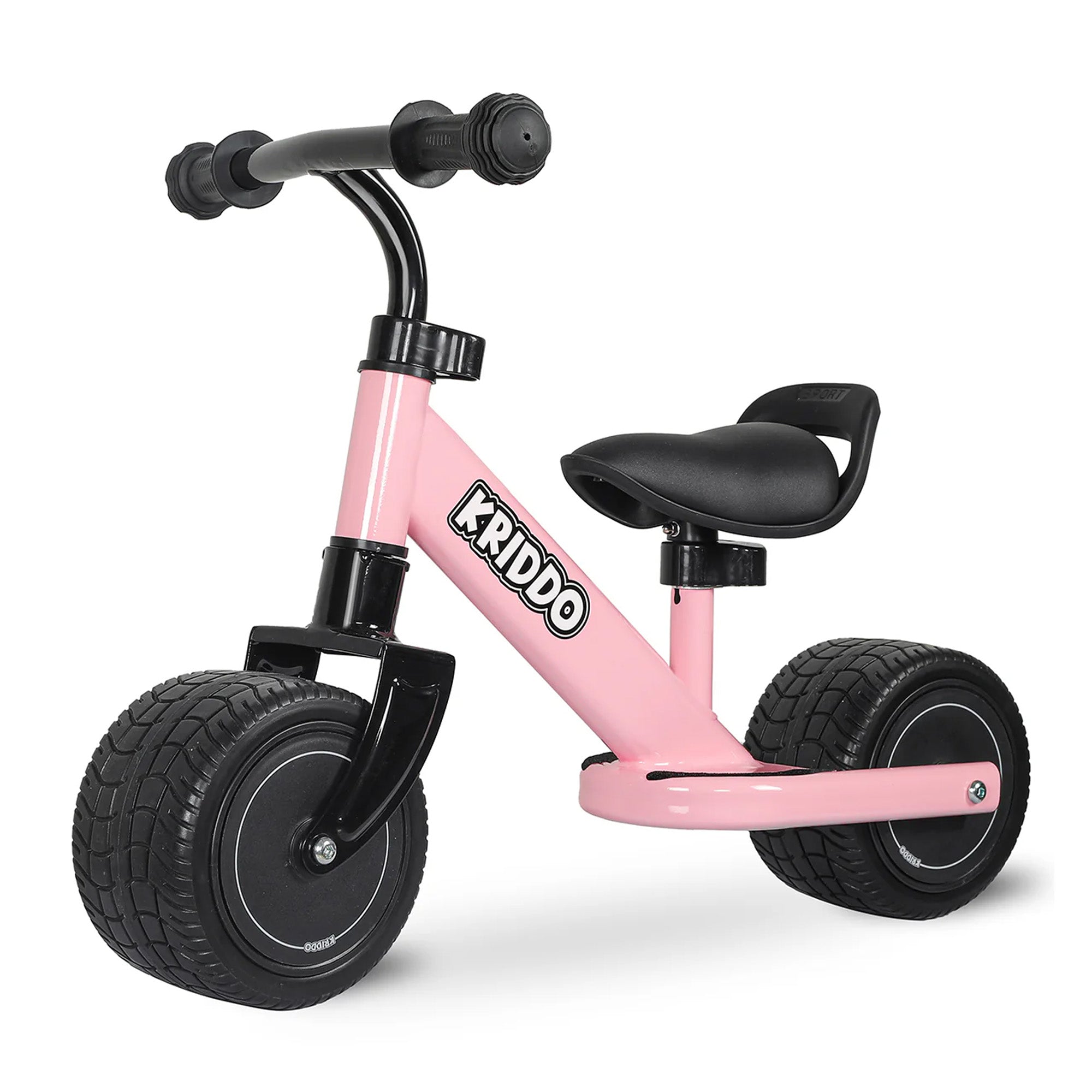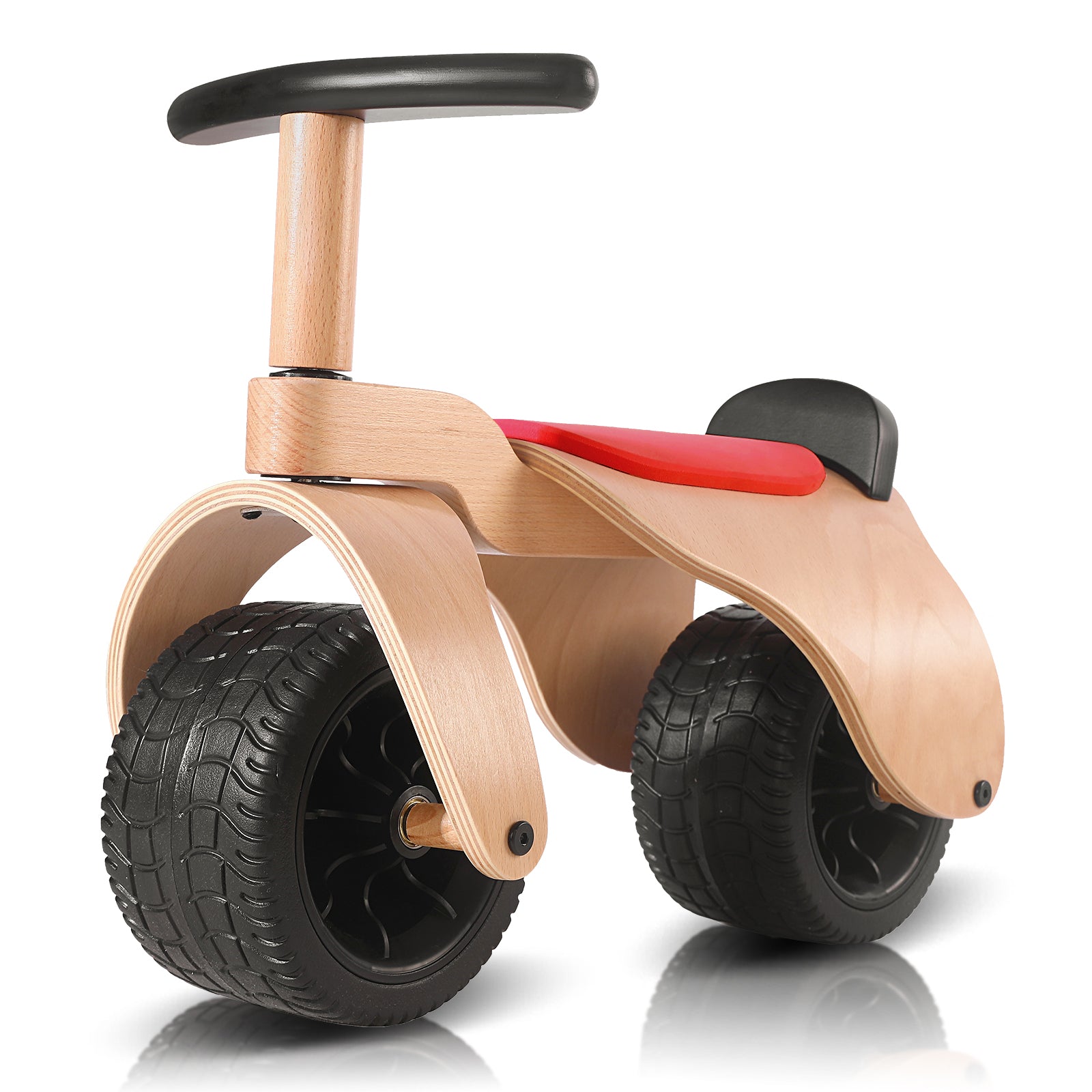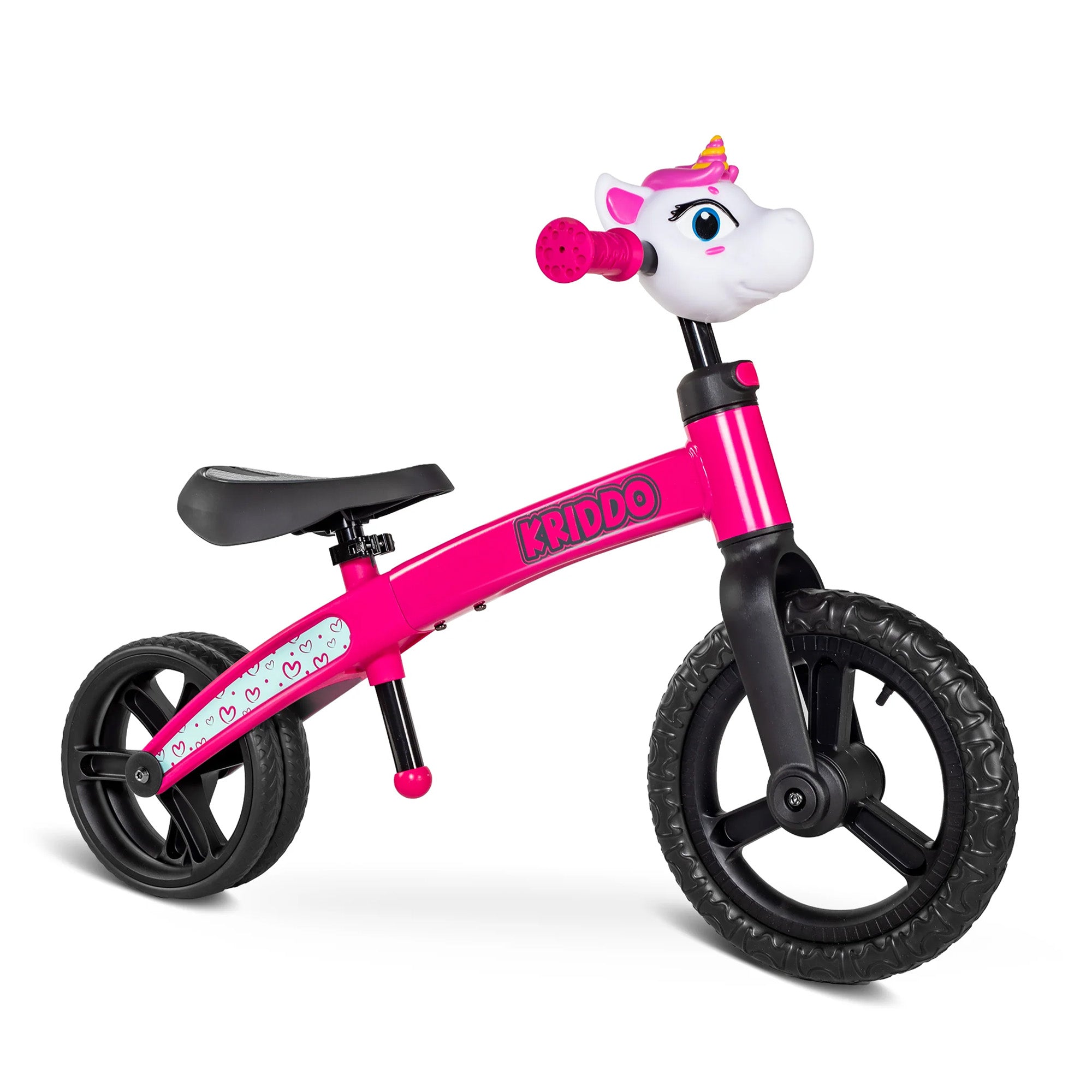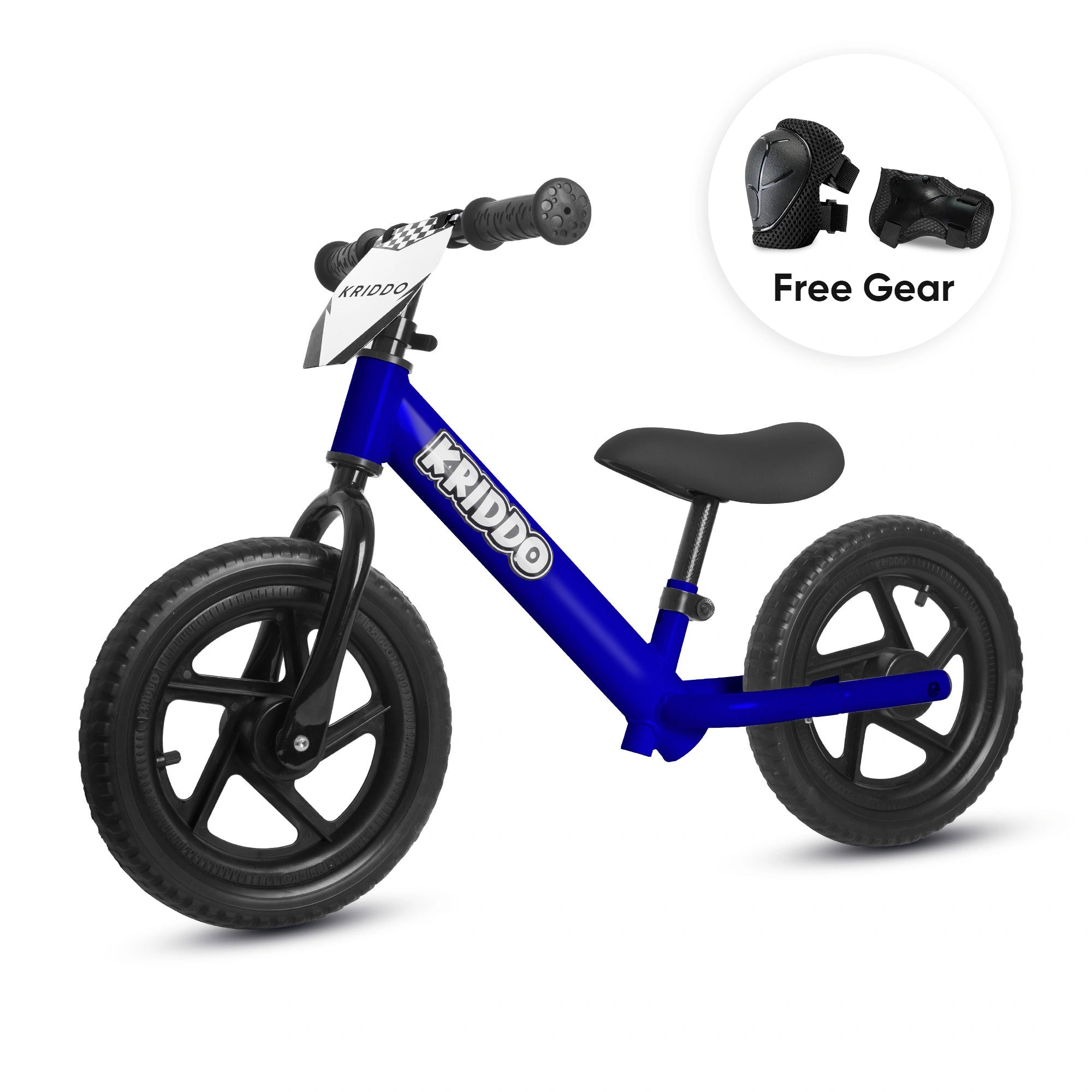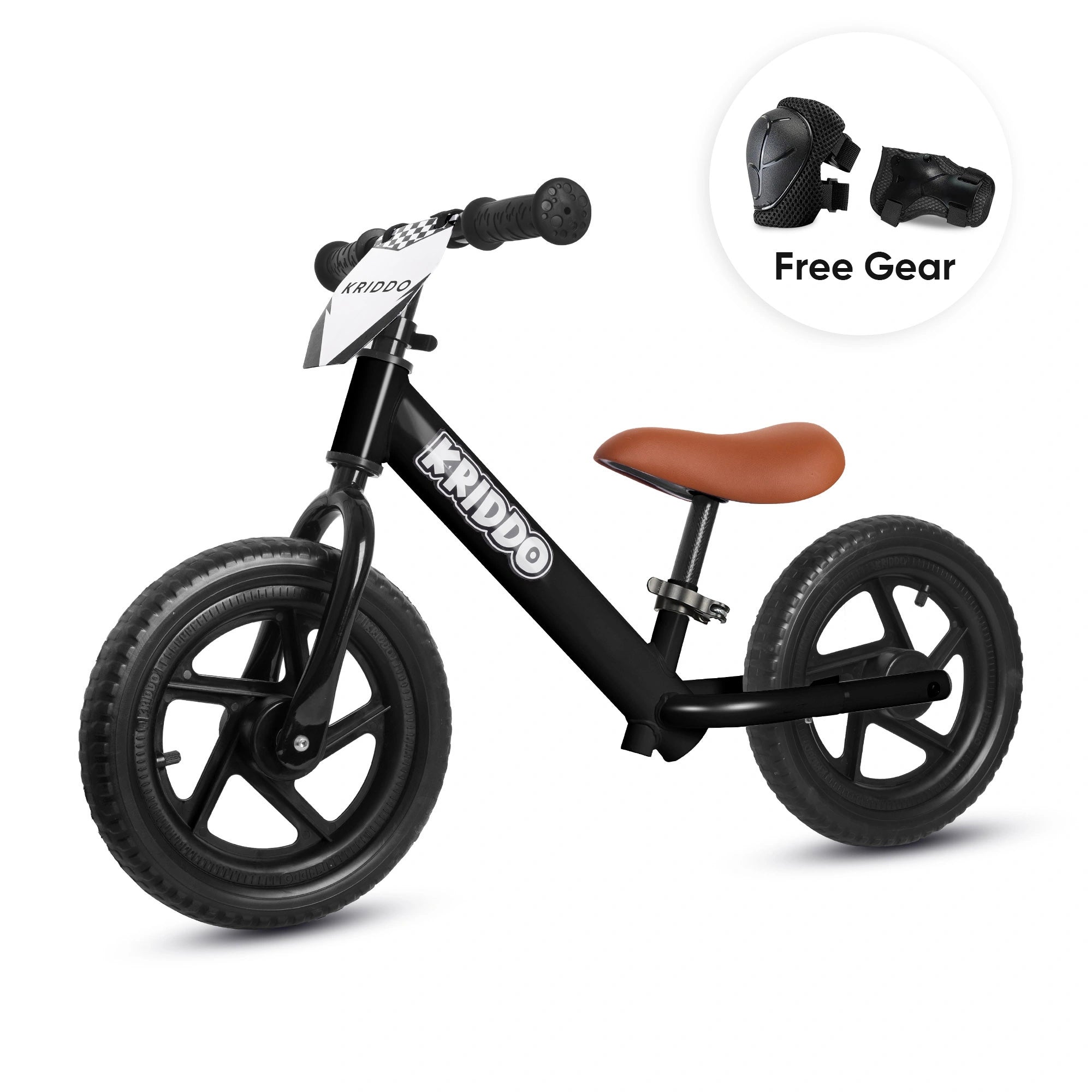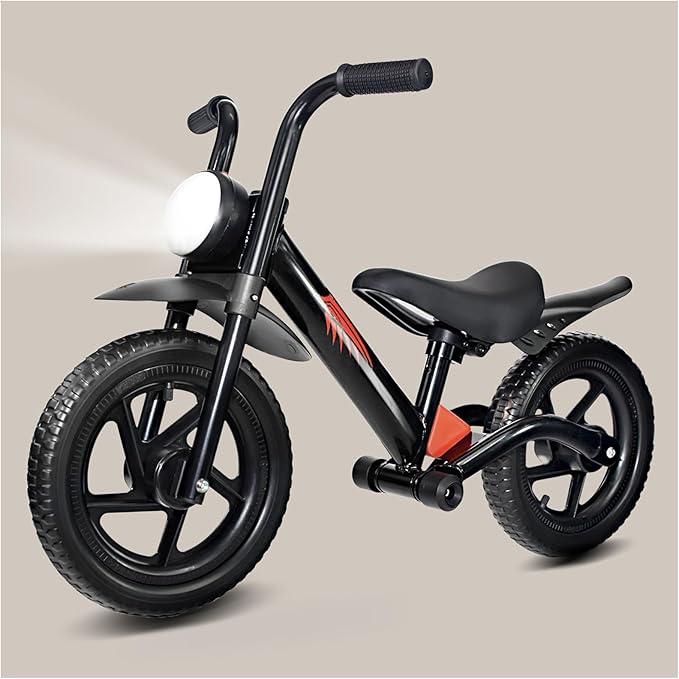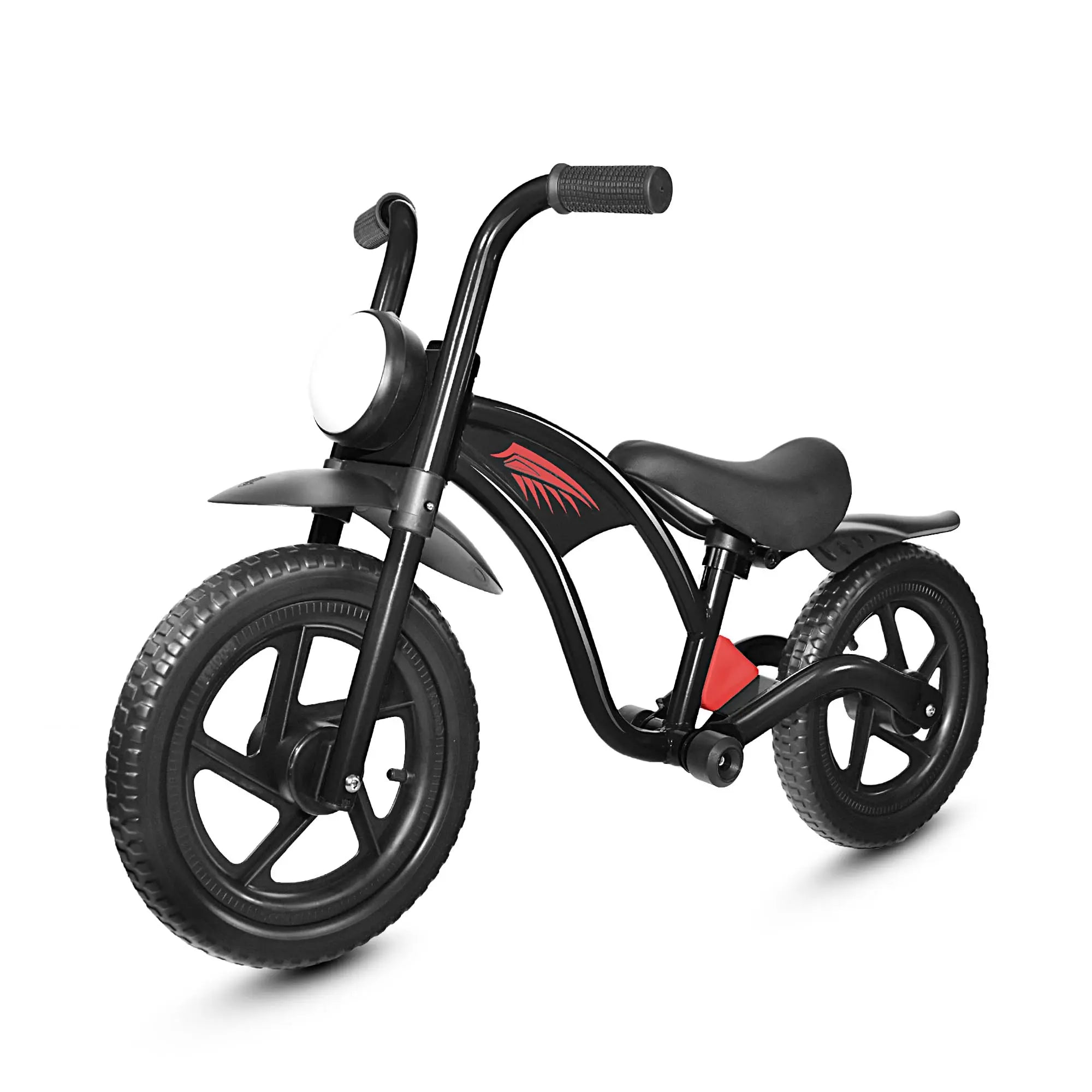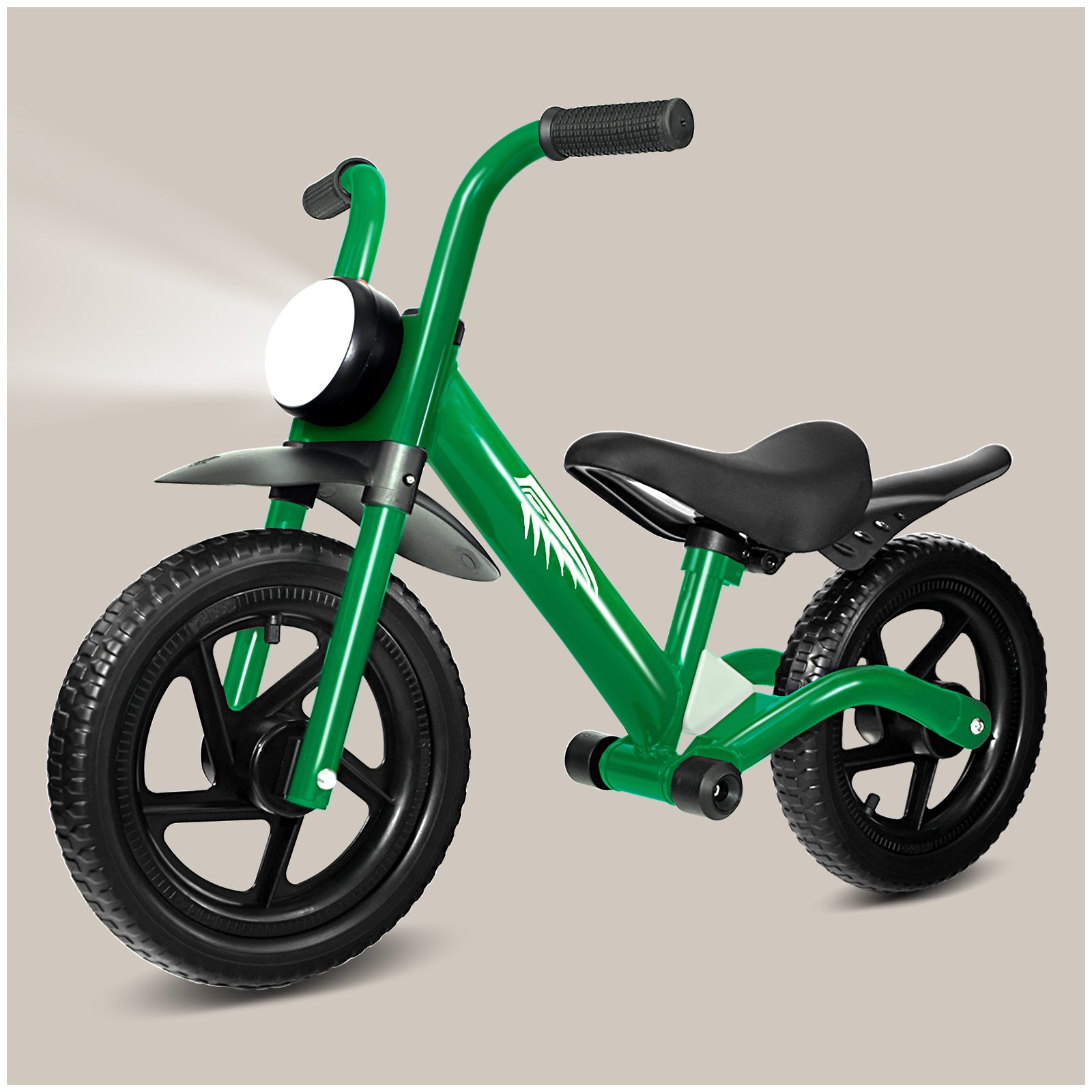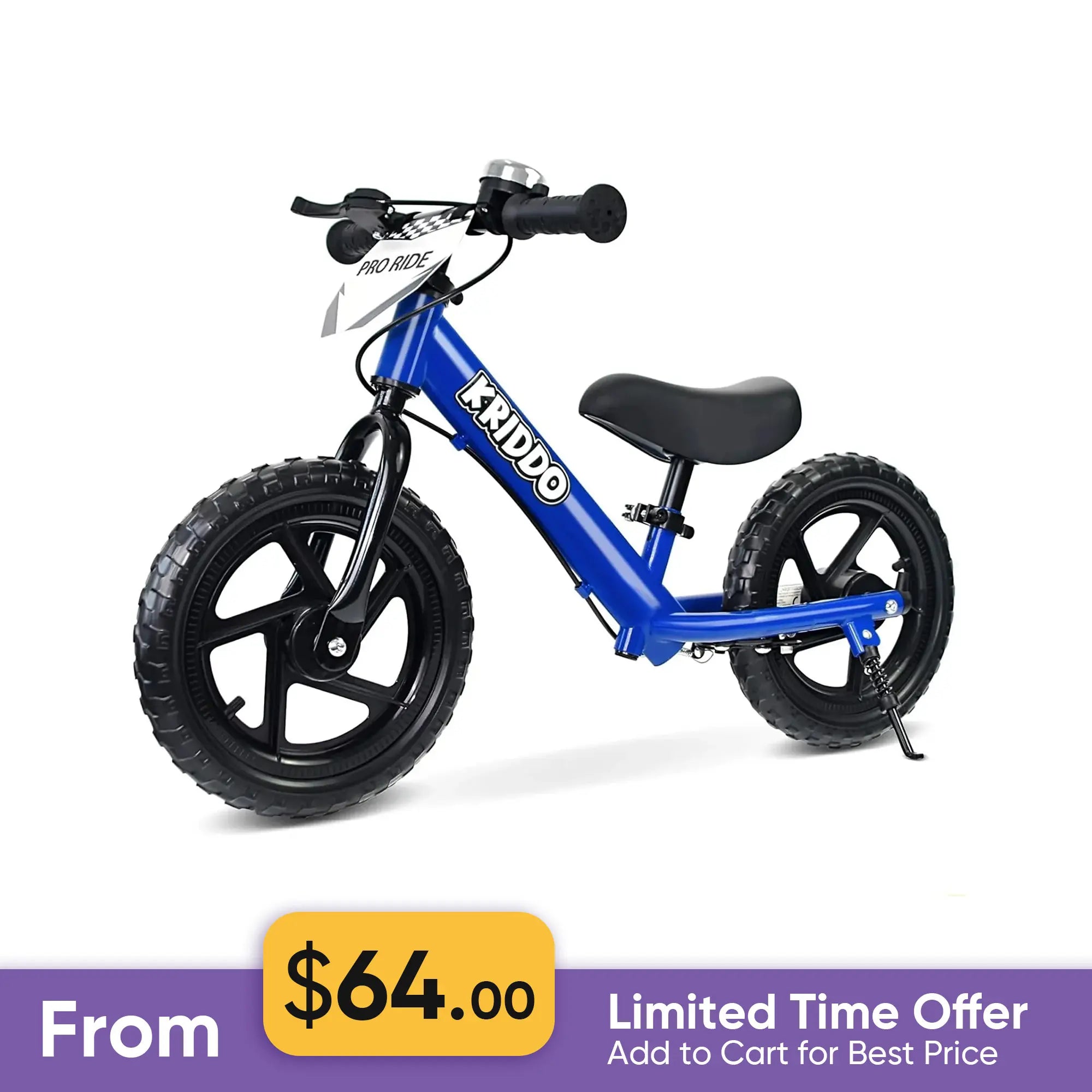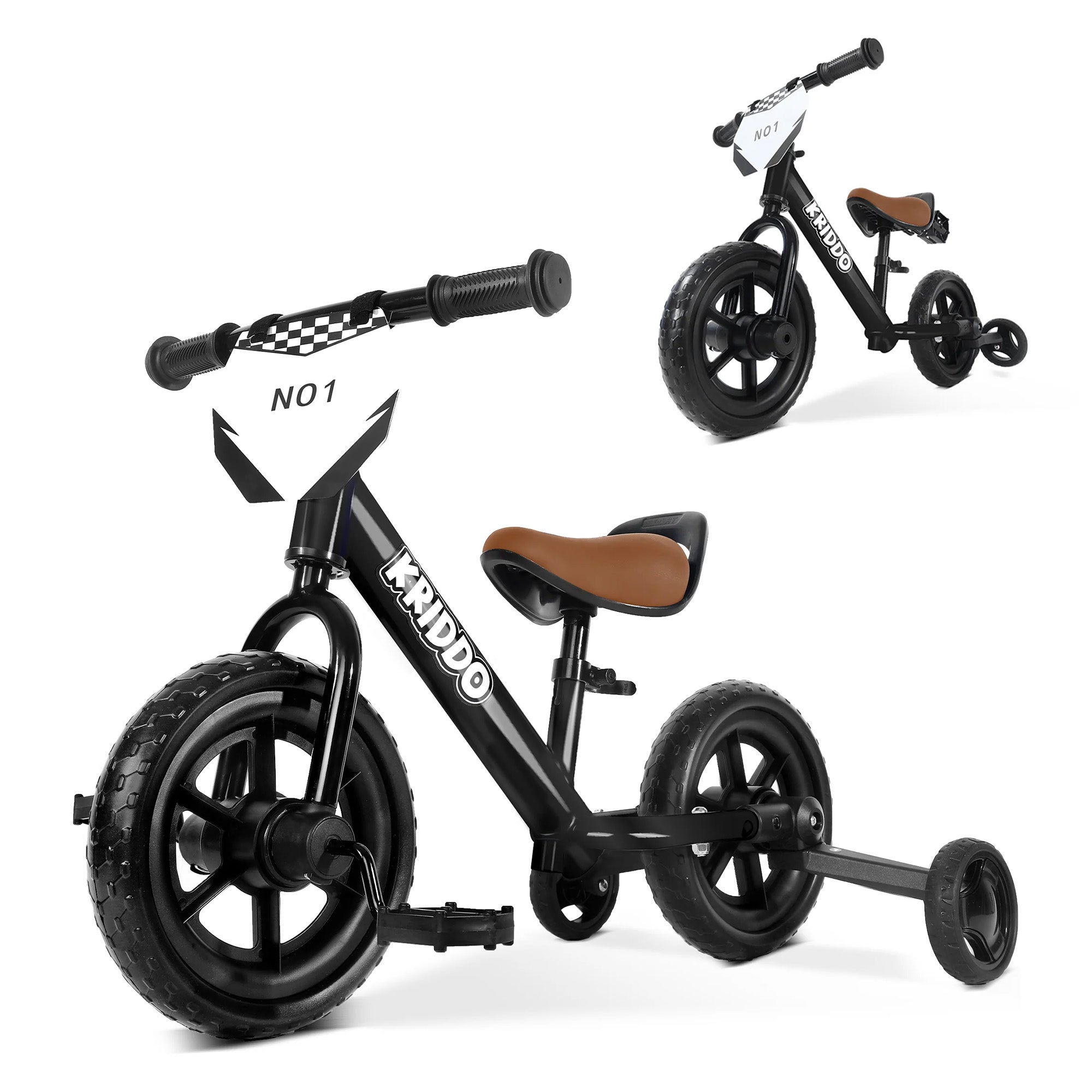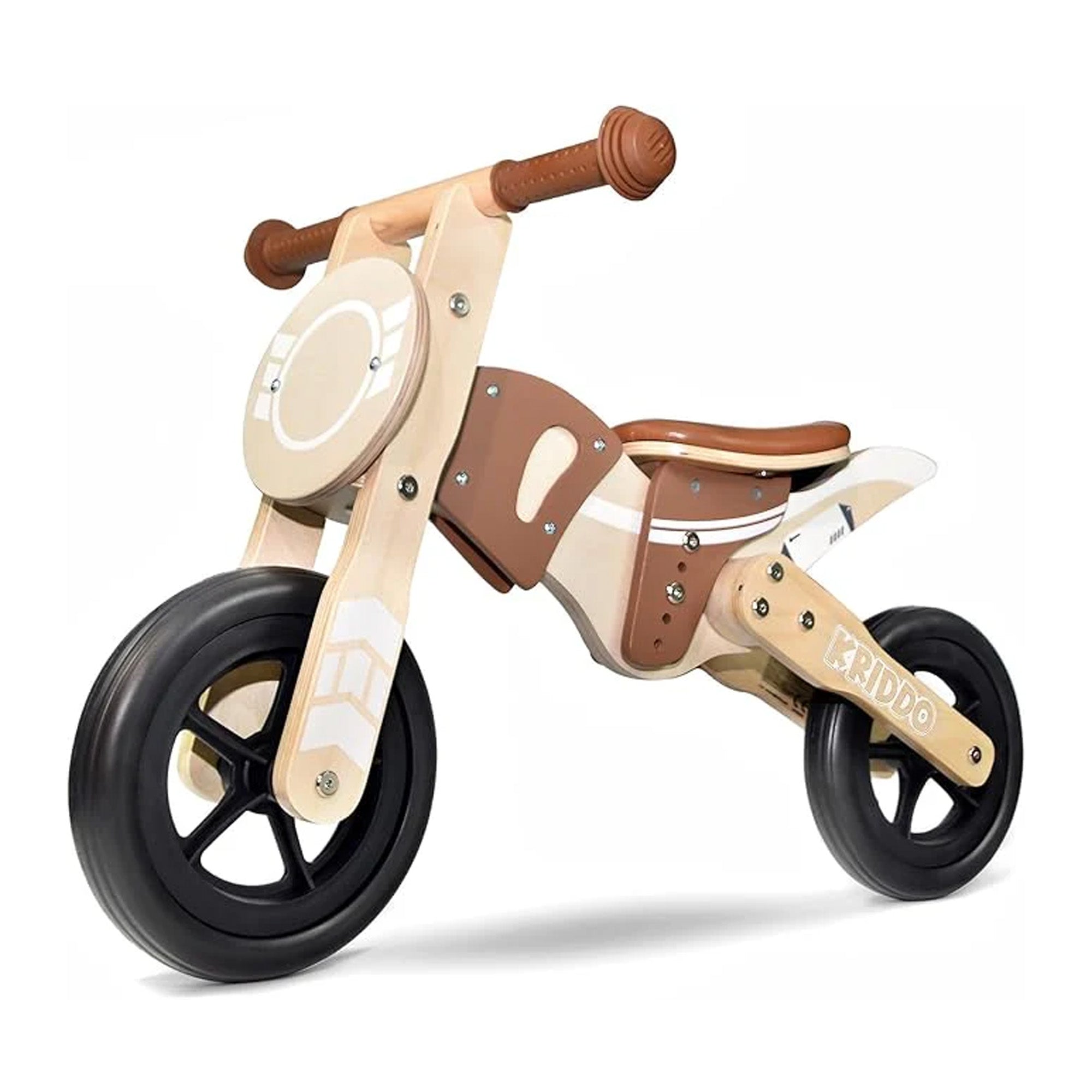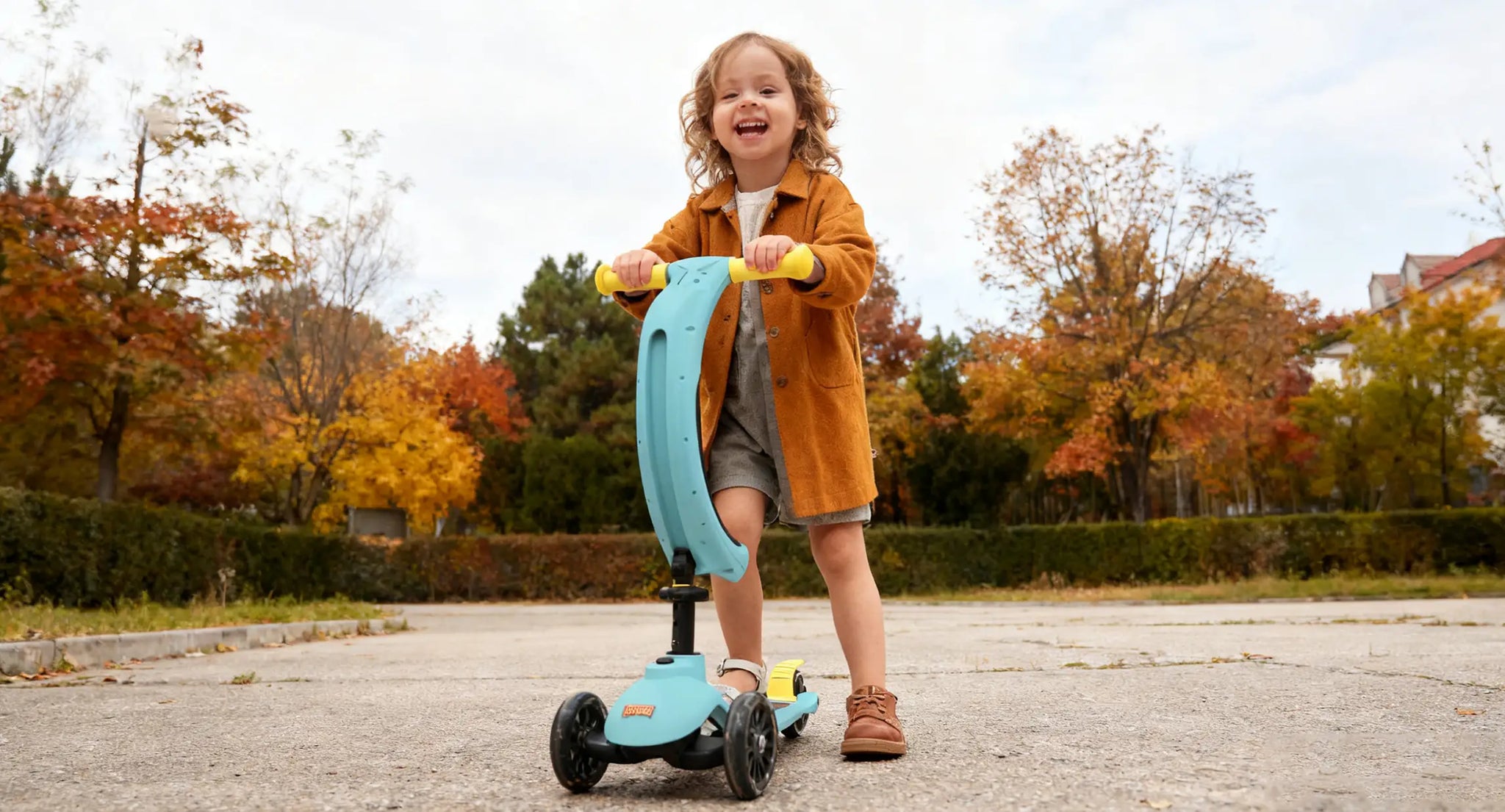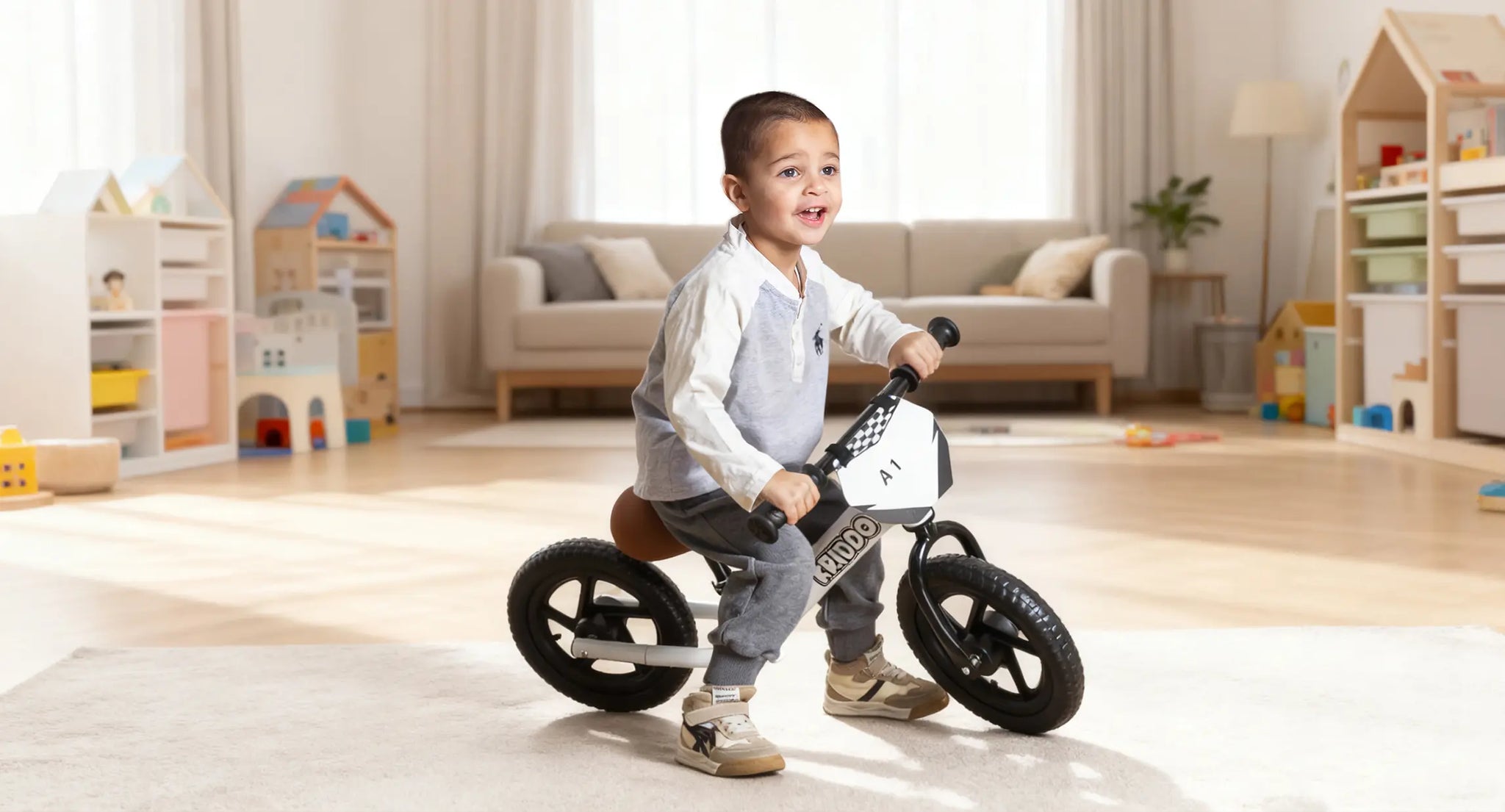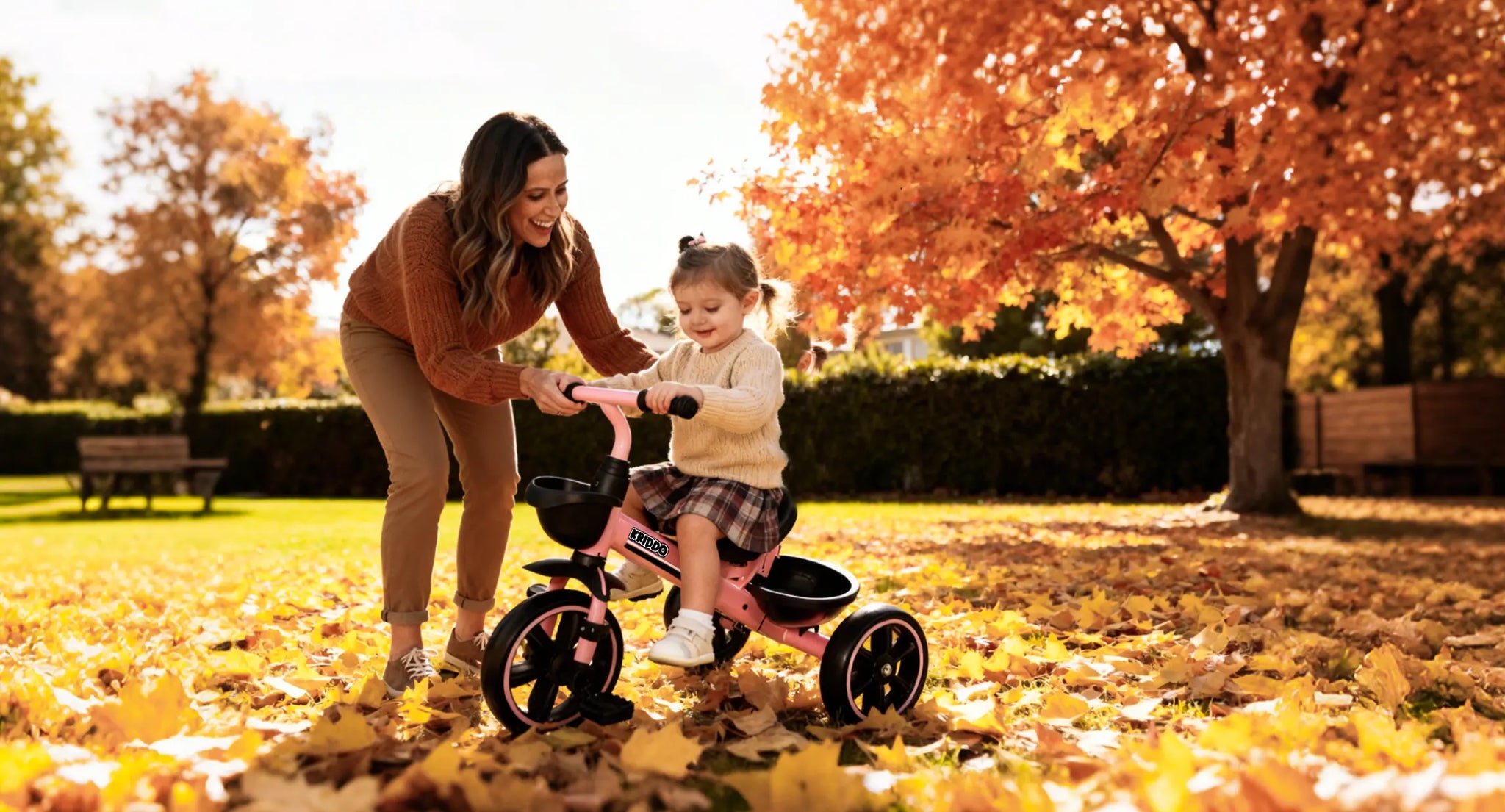Balance Bike for Toddlers: 10 Things You Should Know
Coco | 29th,July
Let’s be honest—picking the right ride for your energetic little explorer can feel like a high-stakes mission. As a parent, you want them to have fun, yes. But above all, you want them safe, confident, and maybe even a little proud of their new set of wheels. That’s where the balance bike comes in.
You’ve probably Googled “balance bike toddler” more than once, and you’re not alone. To make things easier, we’ve pulled together 10 questions we hear all the time—from real parents, just like you—so you can make the smartest, safest choice without second-guessing yourself.
1. “How do I measure my child’s inseam for the right bike size?”

We get this one a lot. The inseam isn’t just a detail—it’s the whole foundation. Here's a quick method:
Have your child stand straight against a wall, feet together.
Slide a hardcover book between their legs (yep, right up there) to mimic the bike seat.
Measure from the floor to the top of the book’s spine.
This number tells you the minimum seat height your child needs to comfortably touch the ground. Pro tip? Have them wear shoes similar to what they’ll bike in—makes the measurement more spot-on.
Learn More: Which Size Balance Bike Should You Choose?
2. “Does my 2-year-old really need a low seat?”
Absolutely. A balance bike for toddlers (especially at age two) should have a super low seat. Why? Because toddlers are still figuring out gravity and motion. A lower seat helps keep their center of gravity close to the ground, which builds confidence and balance skills without the fear of falling.
Models like the KRIDDO Classic Balance Bike have adjustable seats and handlebars—so you’re not buying a new bike every growth spurt.

3. “When should we switch to a pedal bike?”
There’s no magic number, but most kids are ready to transition between ages 3 to 6. You’ll know the time is right when your child can coast smoothly, brake with their feet, and stop without tumbling.
Balance biking has stages—walking, scooting, gliding, and finally balancing with both feet off the ground. Once your child hits that final glide stage? They're pretty much pedal-ready.
Learn More:Balance Bike to Pedal Bike: Make the Leap Without the Tears
4. “How do I encourage my toddler to ride it?”
Sometimes the bike sits there, looking cute... and untouched. Don’t worry.
That’s normal.
Here’s what helps:
Let them ride with friends or older siblings—they love to mimic.
Turn it into a game. Use chalk paths, little obstacle cones, or even race tracks in the park.
Cheer like a maniac when they try. Honestly, they eat that up.
At the end of the day (oops—we mean, when it’s all said and done), confidence grows with practice, not pressure.
5. “Can’t they just learn balance on a scooter?”
Sure, scooters are fun. But here’s the thing—balance bikes and scooters build totally different types of balance.
Scooters teach kids to stay upright while standing and leaning, often using one foot. Balance bikes teach them how to stabilize their body weight while sitting and moving. It’s a more direct stepping stone to riding a regular bicycle.
Want a versatile option? Some parents love KRIDDO 5-in-1 baby scooter that can convert between modes, but if biking is your end goal, a dedicated balance bike wins.

6. “What’s the deal with different tire types?”
Oh yes—wheels matter more than you think.
Pneumatic (air-filled) tires: These are grippy and smooth, like mini car tires. Great for bumpy paths, but heavier and more high-maintenance. And yep, they can go flat.
EVA foam tires: Lightweight, maintenance-free, and pretty much puncture-proof. They don’t have the same grip, but for toddlers zooming around on sidewalks and playgrounds? They’re a solid choice.
Honestly, EVA tires make more sense for the average toddler who’s just starting out.
7. “How high should the seat be?”

If their feet aren’t flat on the ground, the seat’s too high.
Ideally, the seat should be 1 inch lower than their inseam. That allows them to push off the ground easily, run with momentum, and stop safely.
Watch their knees too. Slightly bent while seated is the sweet spot—straight legs or tippy toes are a no-go.
8. “And what about the handlebar height?”
Glad you asked. You don’t want them leaning forward like a Tour de France pro.
Here’s a rough guide:
Age 2: Set handlebars low—around their torso’s midpoint.
Age 3-4: Move it up slightly.
Age 5: Go higher to match their growing frame.
Improper handlebar height can throw off balance and lead to bad posture—or worse, wipeouts.
9. “Can toddlers actually learn to balance that young?”
It may seem wild, but yes—most toddlers can start developing balance as young as 18 months. The trick isn’t teaching them like a coach, but letting them explore.
Balance bikes turn coordination into a game. Kids don’t realize they’re learning physics, body mechanics, and risk management... but they are.
10. “Is it worth investing in a balance bike, or will they outgrow it fast?”
Fair question. And the answer? They’ll grow with it.
Look for models with:
Adjustable seats and handlebars
Lightweight frames
Solid materials that won’t rust or crack
The KRIDDO Balance Bike is made for kids from 18 months to 5 years, with plenty of room to grow—so it's not a one-season wonder.
Final Thoughts (Because, Yep, You’re Still Reading)

Raising a toddler is messy, magical, and full of surprises. Picking the right balance bike shouldn’t add to the chaos.
So whether your kiddo is still toddling or ready to glide like a champ, finding the right balance bike for toddlers can be a total game-changer. And hey, in a year or two, you’ll probably be chasing them down the sidewalk wondering how time flew so fast.
Just don’t forget to take pictures.
Featured Products

